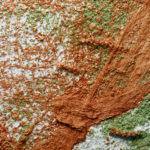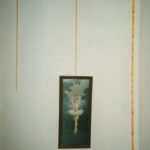AVON, CONNECTICUT
PORTFOLIO (PART I + PART II +PART III + POETIC SUPPORT)
NEWTON, MASSACHUSETTS
PORTLAND, OREGON
Philosophy
Vasily Vasilievich Rozanov (1856–1919)
The Divine Comedy. With a clang, squeak, screech an iron curtain falls over Russian history.
– The performance is over. The audience rises.
– It’s time to put on coats and go home. They looked back. But there were neither coats nor homes.
Georgy Petrovich Fedotov (1886-1951]
In the works [by G. Fedotov] “Russia and Freedom” and “The Fate of Empires” the theme of sinful greatness and the well-deserved collapse of the Russian Empire comes to the fore. With great artistic power and acute critical vision, Fedotov draws a portrait of the sturdy, hardy, relentless “Muscovite” who has “put together, in the sweat of his brow, his monstrous empire”. Fedotov feels no sympathy for the Muscovite, “a blend of a Great- Russian -with a steppe nomad molded into shape prepared by the Josephite Orthodoxy”. And what is there to love in him, Fedotov, as it were, prompts himself: his orthodoxy is only a domestic confessionalism; the center of his religion is mere dietetics; his heavy morality bears clearly anti-Christian features. The living love of Fedotov the Great Russian is reserved for Kiev and Novgorod. Both Kiev and Novgorod knew freedom; even Rus under the Tartars knew freedom. Only Moscow extinguished her. “Ancient Russia”, – writes G. P.,- “still knew free merchants and artisans, Moscow knew only free robbers.”
But not knowing freedom, Moscow loved willfulness, which, according to Fedotov, either leads a man to exit human society, or to violate his fellows.
“Freedom is unthinkable without respect for other people’s freedom, willfulness is always for oneself.”
This characterization of the Muscovite naturally brings him close to a Bolshevik. Indeed, Fedotov writes: “The Soviet man is not a Marxist, but a Muscovite”.
For Fedotov, this proximity between the Muscovite and the Bolshevik not only explains, but to some extent justifies the general hatred which unites all the Russian minorities against the Great Russians. Though Fedotov acknowledges that the Bolshevik Party has incorporated revolutionary-bandit elements of all the peoples of Russia, he still believes that the ideologues and founders of the party were mostly Muscovite, if not always in the flesh, yet always in spirit.
He underscores also the highly controversial fact that Bolshevism has easily established itself in St. Petersburg and Moscow, while the periphery exerted desperate resistance against it. Fedotov adds a number of other reasons to justify the all-Russia hatred for the Bolshevik Moscow.
(Last works by G. P. Fedotov)
Russian philosophers: the end of the XIX – the middle of the XX century; Bibliographical essays, bibliography, texts of works; Moscow, Publishing House “the Book Chamber”, 1996
Nikolai Ivanovich Ulyanov (1904-1985)
The state in Europe, was in the fullest sense of the word, a superstructure of society; in Russia, society itself has been a creation of the state. It could not be otherwise in a primitive country, with a sparse population, consisting of trappers and primitive tillers scattered over immense space.
Here, the very fact of the state’s existence has prepared for it the role of an engine for every success – economic, cultural, military and political. Its supra-tribal, supra-ethnic character persisted at all times and under all transformations. Here, the initiative in the implantation of culture came always from the state.
Whoever does not understand that, will also fail to understand the population group called the Russians. And so he will not understand why an Orel peasant is called a Great Russian, while Turgenev and Bunin, natives of the same Orel province are called Russian.
(N. I. Ulyanov “The Russian and the Great-Russian”)
[Russian philosophers: the end of the XIX – the middle of the XX century; Bibliographical essays, bibliography, texts of works; Moscow, Publishing House “the Book Chamber”, 1996]
Mikhail Mikhailovich Bakhtin (1895 – 1975)
The highest architectonic principle of the actual world of the performed act or deed is the concrete and architectonically valid or operative contraposition of I and the other. Life knows two valuecenters that are fundamentally and essentially different, yet are correlated with each other: myself and the other; and it is around these centers that all of the concrete moments of Being are distributed and arranged. One and the same object (identical in its content) is a moment of Being that presents itself differently from the valuative standpoint when correlated with me or when correlated with another. And the whole world that is unitary in content, when correlated with me or with another, is permeated with a completely different emotional-volitional tone, is valuatively operative or valid in a different way in the most vital, essential sense. This does not disrupt the world’s unity of meaning, but, rather, raises it to the level of a unique event.
This two-plane character of the valuative determinateness of the world-for myself and for the other-is much deeper and much more essential than the difference in the determination of an object which we observed within the world of aesthetic seeing, where one and the same Italy proved to be a homeland for one person and a foreign land for another. Within that world these differences in validity are architectonic, but all of them lie in one dimension-in the world of those who are others for me. It is an architectonic interrelationship of two valuatively affirmed others.
Both Italy-as-homeland and Italy-as-foreign-land are maintained in one tonality, both are located in the world which is correlated with the other. The world that is correlated with me is fundamentally and essentially incapable of becoming part of an aesthetic architectonic. As we shall see in detail later on, to contemplate aesthetically means to refer an object to the valuative plane of the other.
This valuative architectonic division of the world into I and those who are all others for me is not passive and fortuitous, but is an active and ought-to-be division. This architectonic is something-given as well as something-to-be-accomplished, for it is the architectonic of an event. It is not given as a finished and rigidified architectonic, into which I am placed passively. It is the yet-to-be-realized plane of my orientation in Being-as-event or an architectonic that is incessantly and actively realized through my answerable deed, upbuilt by my deed and possessing stability only in the answerability of my deed.
The concrete ought is an architectonic ought: the ought to actualize one’s unique place in once-occurrent Being-as-event. And it is determined first and foremost as a contra position of I and the other.
This architectonic contra position is accomplished by every moral act or deed, and it is understood by elementary moral consciousness. Yet theoretical ethics has no adequate form for its expression. The form of a general proposition, norm, or law is fundamentally and essentially incapable of expressing this contra position, the sense of which is absolute self-exclusion. What inevitably arises in this case is an equivocation, a contradiction between form and content. This moment can be expressed only in the form of a description of the concrete architectonic relationship, but such a description is still unknown in moral philosophy. Whence it does not follow at all, of course, that the contraposition of I and the other has never been expressed and stated-this is, after all, the sense of all Christian morality, and it is the starting point for altruistic morality. But this principle of morality has still not found an adequate scientific expression, nor has it been thought through essentially and fully.
[M. Bakhtin, “ Toward a Philosophy of the Act”, University of Texas Press Slavic series, No. 10 Michael Holquist, General Editor (1993)]
***
“Others, like Alexei S. Khomyakov (1804-60), despite his loyalty to Russian Orthodoxy and opposition to the Ottoman rule over Christians and fellow Slavs, valued Islam higher that Catholicism. Khomyakov studied Sanskrit, and though familiar with the Western culture, he opposed its cult of individualism by stressing cooperation and togetherness (sobornost’). As one of the founders of the Slavophile Movement, Khomyakov saw the Slavs as the outstanding representatives of the Arian-Iranian race. The mystic Slavophile poet Fyodor I. Tyutchev (1803-73) preached a future great Orthodox Slav empire, with Rome having an Orthodox pope subordinated to the Russian Tsar residing in Constantinople. Even to the ultraconservative Slavophile Konstantin Leontiev (1831-91), the wishful image of the future Russian empire in Asia differed from a Western imperialist stereotype. Tibetan and Hindu traditions were more inspiring to him than was Western Christianity. Like Khomyakov, Leontiev had a strong racial vision (for example, see his Racial Politics as a Weapon of World Revolution, 1888) and equally strong hopes that the Turanian element would shape the Russian Slavic culture into something spiritually more elevated and distinct from Europe”.
(Hauner, Milan (2013) What is Asia to Us? : Russia’s Asian Heartland Yesterday and Today 1st Edition, Routledge Revivals)
***
“Happy families are all alike; every unhappy family is unhappy in its own way.
Everything was in confusion in the Oblonskys’ house. The wife had discovered that the husband was carrying on an intrigue with a French girl, who had been a governess in their family, and she had announced to her husband that she could not go on living in the same house with him”.
(Leo Tolstoy, Anna Karenina)
***
“Byzantium was also the source from which Vladimir received signs of his royal (grand-duke) dignity: the “Cap of Monomakh “and the “barmy”(shoulder mantles).
This “Cap of Monomakh” has been preserved to this day and is now in Moscow. In a dispute between Ukrainian and Russian historiography about the continuity of culture and statehood of the Kievan Rus, it serves as a proof that Moscow is the true successor of the Kievan statehood. The Cap of Monomakh has not been stolen by anyone or removed by force: when the center of Russia moved from Kiev to the north, it was, like the epic poems, it was moved by its legitimate owners to the new state center – Moscow.”
(Andrey Dikiy (1960), “An undistorted history of Ukraine-Rus”, New York, Publishing House: “The Truth about Russia”)
A table of contents
(1) Babaev E. G, (Eduard Grigor’evich)
(2, 3) Berdiaev, Nikolaĭ, 1874-1948
(4) Gershenzon, M. O. (Mikhail Osipovich), 1869-1925
(5, 6) Dobrokhotov, A. L. (Aleksandr L’vovich)
(7) Nevolin, S. V.
(8) Parkes, James William, 1896-1981
(9) Pisarev, D. I. (Dmitriĭ Ivanovich), 1840-1868.
(10, 11, 12) Rozanov, V. V. (Vasiliĭ Vasil’evich), 1856-1919
(13, 14, 15) Florovskiĭ, Georgiĭ Vasil’evich, 1893-1979
(16, 17) Heidegger, Martin, 1889-1976
(18, 19) Chizhevskiĭ, Dmitriĭ I., 1894-1977
(20) Nikolai Berdyaev, 1874-1948
(1) Babaev E. G, (Eduard Grigor’evich)
“In order for a literary work to be good – you need to love itsprincipal, core thought”, said Tolstoy.(p. 28)
“Turgenev – is a literary man.” said Tolstoy. “Pushkin was one also. Goncharov – even more of a literary man than Turgenev. Lermontov and I – we are not. (p. 28)
“The battle,” wrote Tolstoy, “didn’t happen………………………., the way they described it…” (p. 29)
“Tolstoy wants to prove,” wrote Lachinov, “that a commander-in-chief can’t give orders on the battlefield, and if he gives orders, such orders either don’t make sense, or are impossible to carry out.” (p. 30)
“I’ve always thought and knew,” wrote Tolstoy, “that the success of the military… depends not on the foresight and all the possible considerations, but the skill to handle the spirit of the troops…” (p. 31)
“I will write stories about people, who are freer than the state people,” said Tolstoy. “People, who lived in the most comfortable conditions, free from poverty and ignorance, independent people, who didn’t have any of those shortcomings found in those who are mentioned on the pages of history chronicles…” (p. 34)
…Strahov notes: “Obviously, Mr.Tolstoy, L.N. depicted dark sides of the subjects not because he wanted to attract attention to them, but because he wanted to depict subjects as whole, with all their sides, including
dark ones. (p. 38)
Norov was outraged. “Is it possible,” he writes, “that Kutuzov, on his was directly from Petersburg, with blessings from the Monarch, from the people in the capital, and all the people on his way, when the enemy had already traveled into the heart of Russia; on the arrival to Tsarevo-Zaimische, staring at the Napoleon army right in front of him, the day before a crucial, horrible battle, had time not only to read, but to think about Ms. Janlis’ novels, with which he got into Mr. Tolstoy’s novel?!!” (p. 39)
Norov had harsh judgments. He was sure, that “War and Peace” will soon be forgotten. He blamed Tolstoy for not having understood and appreciated the events of 1812: “The glorious 1812, in the military and civilian life, was presented by you as a soap bubble.” (p. 40)
“War and Peace” evoked the feeling of “great disappointment” in Norov. That’s exactly why he wanted to “confront Tolstoy with the history”. “I would not expect from a novel, which was written for an effect, what is required of the history. However, because this novel brings out historical figures onto the stage, I must put Tolstoy and the history face to face…” (p. 41)
Tolstoy saw Volkova, M.A.’s letters long before they were published in “Vestnik Evropy”. He used the mentioning of the “daring bravery” of Viazemsky in the depiction of Pierre Bezuhov’s trip to the Borodino
battlefield. Viazemsky didn’t notice it, or didn’t want to notice. He read “War and Peace” as a “fiction or humorous story in the spirit of Gogol or Griboyedov”. “After “The Inspector General” and “Dead Souls”,
it’s no use to chase after Ilya Andreevichs’, Bezhovs’ and old nobles, who, when it came to saving, or at least talking about saving the motherland, were only concerned with how hot they felt.” (p. 43)
In one of his letters to Tolstoy, Bartenev writes, “First chapters of Part II, Second Book, are very interesting. However, it seems that Pozdeev should’ve been taking his tea with great comfort and appetite;
he should’ve had some special cookies. All masons must have a sweet tooth. Their teaching itself – is a wish to put God’s blessings in the pocket, to touch Godliness with their own hands, so to speak. That’s why
they thought they were special.” (p. 45)
… one of the reasons why Tolstoy and the “registrar” didn’t get along, especially in the late years. Bartenev “ended his relationship with count Tolstoy after many years of friendship…because Leo Nikolaevich allowed himself to speak badly of Alexander III in his presence,” writes P. Bartenev Jr., “Tolstoy and Viazemsky weren’t friends either.” (p. 46)
Viazemsky thought that Tolstoy was a writer of a new, young generation, and he blamed Tolstoy of belonging to the “school of dissent”. The “school of dissent” and the demeaning of history under the pretence of a new evaluation of it – this is not new… The author of “War and Peace”, in his eyes, was a free-thinker and even a person without God: “Godlessness empties the heavens and the future…” Viazemsky sensed sectarianism in the philosophy of Tolstoy.” About thirty years ago or so,” remembers Viazemsky, “in Saratov, I met a dissenter, who belonged to a group called Netovschina. All Netovschina members were desperate nihilists, and they preached the “ending” of life.” “I don’t know for what purpose or whose benefit these hysterical ‘enders’ are operating.” notes Viazemsky. He was prepared to put Tolstoy in this category as well… (p. 47)
“This is quite interesting – when it comes to memories and personal impressions; but particularly unacceptable in regards to literary and philosophical principles.” noted Tutchev, F.I. in 1869. “Prickly characters like Viazemsky are to the new generation, as a hostile and prejudiced foreign visitor to an unexplored country.” (p. 48)
Reading Viazemsky’s thoughts on “netovschina” carefully, one begins to understand, that “Tolstoy’s breaking away from his environment”, his “joining the masses” and even “leaving the church”, along with the accusations of nihilism and atheism – didn’t happen overnight, it all started back in the 60’s. (p. 48)
…In Tolstoy’s novel, Schebalsky observed rejection of the principals of the monarchial historiography, Russian and French equally. Tolstoy’s main idea was expressed in his thoughts about Napoleon: “Napoleon was presented to us as a leader of this movement (as to the wild – a figure attached to the ship’s bow, which symbolizes the force leading the ship). Napoleon was like a child, who is holding the strings tied inside the carriage and imagining that he is the one driving.” (p. 54)
…Tolstoy was aware of his talent better that any of his critics. His artistic genius was given to him by nature, along with the “immense power of the observation, and there’s nothing anyone can do about it.”
(p. 56)
Further, Botkin reiterates the “public opinion”: “They think that the perceptive element of the novel is very weak, that the philosophy of the story is modest and superficial, that the denial of the predominant influence of an individual character in the events is nothing more than a mystical trick.”(p. 56)
Fet defined the artistic originality of the novel: “I understand that the principal task of this novel is to turn a historical event inside out, and look at it not from an official, sewn with a gold thread ceremonial uniform point of view, but a simple shirt, which is closer to the body.” However, some naturalistic details, as Fet referred to them, confused him, … and he points out to Natasha Rostova’s character in the epilog. “Now we know why…she doesn’t feel like singing. She is feeding her children zealously. We know why she doesn’t have to think about ribbons, belts and hair curls. All of this doesn’t hurt the opinion of her wholesome beauty. But why is it necessary to stress that she has become a slob.” writes Fet. “This may be possible in reality, but in art – this naturalism is unbearable. It’s a caricature, which disturbs the harmony. (p. 58)
“Do you remember the article by Annenkov?” Tolstoy said to someone many years later. “This article was unfavorable to me, and so? After all that was written by others, I was touched by it then.” (p. 63)
“Apolon Grigoriev understood that the work of Tolstoy touches something very big and very important.” admits Pisarev. “I came to the conclusion that our critics kept silent about Tolstoy or, even worse, spoke of him sweet nothings only because of their weakness and lack of thought.” (p. 64)
Precisely then, he felt hostility towards the art due to its uselessness. “When these transitions happened,” wrote Pisarev. “Then, of course, everything that’s artistic, I threw off the boat with great pleasure.” At that time, he threw out Fet, Tolstoy, and Pushkin went along with them. “I condemned them and laughed at them in my mind.” admits Pisarev. “I wasn’t afraid that I might be wrong…” (p. 65)
Tolstoy doesn’t mention the article by Pisarev. However, it would be hard to imagine that it passed by him unnoticed. So, once he notes: “Incidentally, I like the boldness with which he speaks.” (p. 69)
…Saltikov-Schedrin once said about “War and Peace”: “This military – is nothing more than a hip of lies… However, our so-called “High Society” was abundantly praised by the count. (p. 69)
“It would’ve been useful if our men followed the example of these energetic women, who move towards their goal fearlessly and in a straight line, like a soldier with a lowered bayonet and a loaded gun…” was written in “Otechestvenye Zapiski” (“Notes of the Fatherland”) “… ‘little princess’, duchess Marya, Sonya, Natasha Rostova, Elen Kuragina – all of them came out alive, each with her own character.” (p. 70)
Tsebrikova thought that the issues of female emancipation were not just new, but rather ultra new. As to Tolstoy, he thought that these issues wet not only old, but ancient. (p. 74)
Babaev, Eduard Grigorievich. (1993). /Lev Tolstoy and Russian Journalism of his Period. / Moscow: Moscow State University Press.
“Чтoбы произведение было хорошо, – надо любить в нем главную, основную мысль”, – говорил Толстой. (стр. 28)
“Тургенев – литератор, – говорил Толстой, – Пушкин был тоже им; Гончаров – ещё больше литератор, чем Тургенев; Лермонтов и я – не литераторы” .(стр. 28)
“Сражение, – пишет Толстой, – произошло совсем не так, как………………………….., описывают его….” (стр. 29)
“Толстой желает доказать, – пишет Лачинов, – что главнокомандующий на поле сражения не может отдавать никаких приказаний, а если и отдаёт их, то они или не имеют смысла, или не могут быть исполнены” (стр. 30)
“Я всегда по рассуждению и опыту был и остаюсь того убеждения, – пишет Толстой, – что вопросы военных успехов решаются… не столько предусмотрительностью и силою всех возможных соображений, сколько умением обращаться с духом войска…” (стр. 31)
“Я буду писать историю людей, более свободных, чем государственные люди, – говорил Толстой, – историю людей, живших в самых выгодных условиях жизни, свободных от бедности, от невежества и независимых, людей, не имевших тех недостатков, которые нужны для того, чтобы оставить следы на страницах летописей…” (стр. 34)
… Страхов замечает: “Очевидно, гр. Л. Н. Толстой изображал тёмные стороны предметов не потому, чтобы желал их выставить на вид, а потому, что хотел изображать предметы вполне, со всеми их чертами, следовательно и с тёмными”. (стр. 38)
Норов возмутился. “Есть ли какое вероятие, – пишет он, – чтобы Кутузов, ехавший прямо из Петербурга, напутствуемый своим монархом, всем населением столицы и в продолжении пути всем народом, когда уже неприятель проник в сердце России, а он с прибытием в Царево-Займище, видя перед собой все армии Наполеона и находясь накануне решительной, ужасной битвы, имел бы время не только читать, но и думать о романах г-жи Жанлис, с которым он попал в роман графа Толстого?!!” (стр. 39)
Норов судил строго и был уверен, что”Война и мир” скоро будет забыта. Он ставил в вину Толстому, что он не понял и не оценил событий 1812 года: “Громкий славою 1812 год как в военном, так и в гражданском быту представлен вам мыльным пузырем”. (стр. 40)
“Война и мир” вызывала у Норова чувство “великого разочарования”. Именно поэтому он и хотел “поставить Толстого лицом к лицу с историей”. “Я не стану требовать от романа, писанного для эффекта, того, что требуется от истории; но так как этот роман выводит на сцену деятелей исторических, то не могу не поставить его лицом к лицу с историей…” (стр. 41)
Толстой познакомился с письмами М. А. Волковой задолго до их публикации в “Вестнике Европы”. И воспользовался упоминанием о “дерзостной отваге” Вяземского при описании поездки Пьера Безухова на поле Бородинской битвы. Но Вяземский этого не заметил или не хотел замечать.
Он читал “Войну и мир” как “Фантастическую или юмористическую историю в духе Гоголя или Грибоедова”. Но “после “Ревизора” и “Мёртвых Душ” нечего гоняться за Ильями Андреевичами, за Безухими и старичками вельможами, у которых в такую минуту, когда дело или, по крайней мере, слово шло о спасении отечества, одно выражалось в них – что им очень жарко”. (стр. 43)
В одном из писем к Толстому Бартенев пишет: Первые главы 2-й части 2-ого тома очень любопытны. Только мне кажется, что Поздеев должен был кушать чай с большим комфортом и аппетитом; у него должны быть какие-нибудь особенные сухарики. Все массоны непременно сластолюбцы. Самое их учение – есть желание положить себе благодать в карман, так сказать, пощупать божество руками. Оттого они и заходили к богу с заднего крыльца.” (стр. 45)
….одна из причин того, что отношения Толстого с “архивариусом” разладились окончательно в позднейшие годы. Бартенев ” с графом Толстым, после многолетней дружбы… порвал за то, что Л. Н. позволил себе при нём непочтительно выразиться об Александре III “, – пишет П. Бартенев – младший. По той же причине не налаживались отношения Толстого с Вяземским. (стр. 46)
Толстой был в глазах Вяземского писателем нового, молодого поколения, и он обвинял его в принадлежности к “школе отрицания”. “Школа отрицания” и унижение истории под видом новой оценки её, – всё это не ново………….. .
Автор “Войны и мира” представлялся ему вольнодумцем и даже безбожником: “Безбожие опустошат небо и будущую жизнь. ……”
В филисофии Толстого слышались Вяземскому отголоски каких-то сектанских понятий. “Лет тридцать тому и более ведел я в саратовском остроге, – вспоминает Вяземский, – раскольника, принадлежащего толку Нетовщины”
Нетовщики были все отчаянные нигилисты и проповедовали “прекращение” жизни.” Не знаю, ради чего или кого действуют истирические прекратители”, – замечает Вяземский. Но и Толстого он готов был зачислить в ту же секту,….. (стр. 47)
“Это довольно любопытно – с точки зрения воспоминаний и личных впечатлений и весьма неудовлитворительно со стороны литературной и философской оценки, – отмечал Ф. И. Тютчев в 1869 году. – Но натуры столь колючие, как Вяземский, являются по отношению к новым поколениям тем, чем для мало исследованной страны является враждебно настроенный и предубежденный посетитель-инстранец”. (стр. 48)
Вчитываясь в рассуждения Вяземского о “нетовщине”, начинаешь понимать, что “разрыв Толстого со своей средой”, его “переход на сторону народа” и даже “отлучение от церкви” вместе с обвинениями в нигилизме и безверии – всё это произошло не вдруг, а завязывалось еще в 60-е годы (стр. 48)
…Щебальский не без основания усматривал в романе Толстого отказ от принципов монархической историографии, в равной степени русской и французской.
Основная мысль Толстого выражена в его рассуждениях о Наполеоне: “Наполеон, представляющимся нам руководителем всего этого движения (как диким – фигура, вырезанная на носу корабля, представлялась силою, руководящею корабль), Наполеон во все время своей деятельности был подобен ребёнку, который, держась за тесёмочки, привязанные внутри кареты, воображает, что он правит”. (стр. 54)
…своё призваниеТолстой сознавал лучше, чем кто-либо другой из его критиков. Художественный гений был дан ему от природы вместe с “избытком силы наблюдения, и с этим ничего нельзя было поделать. (стр. 56)
Далее Боткин пересказывает “общее мнение”: “Находят, что умозрительныи элемент романа очень слаб, что фолософия истории мелка и поверхостна, что отрицание преобладающего влияния личности в событиях есть не более как мистическое хитроумие”. (стр. 56)
По своему точно определил Фет художественное своеобразие романа: “Я понимаю, что главная задача романа: выворотить историческое событие на изнанку и рассматривать его не с официальной, шитой золотом стороны парадного кафтана, а с сорочки, то есть рубахи, которая к телу ближе”.
Но Фета смущали некоторые натуралистические, как он считал, подробности, ….
И указывает на характер Наташи Ростовой в эпилоге. “Мы поняли почему… её не тянет петь, а тянет ревновать и напряженно кормить детей. Поняли, почeму ей не нужно обдумывать пояса, ленты и колечки локонов. Всё это не вредит целому передставлению о её духовной красоте. Но зачем было напирать на то, что она стала неряха, – пишет Фет. – Это может быть в действительности, но это нестерпемый натурализм в искусстве. Это шаржа, нарушающая гармонию”. (стр. 58)
“Помните ли вы статью Анненкова? – говорил Толстой одному из своих собеседников много лет спустя. – Статья эта во многом была неблагоприятна для меня, и что же? После всего, что было писано другими, и я с умилением читал её тогда. (стр. 63)
“Аполон Григорьев, – признается Писарев, – понимал, что произведения Толстого затрагивают что-то очень большое и очень важное”.
“Мне пришло в голову, – признается Писарев, – что критика наша молчала о Толстом, или ещё того хуже, говорила о нём ласкательные пустячки единственно по своему бессилию и скудоумию”. (стр. 64)
Именно тогда он почувствовал вражду к искусству за его бесполезность. “Когда эти переходы совершились, – отмечает Писарев, – тогда, конечно, всякую художественность я с величайшем наслаждением выбросил за борт”. За борт тогда был выброшен и Фет, и Толстой, и заодно с ними и Пушкин. “Я осудил и осмеял в своем уме всю эту кучу гуртом, – признаётся Писарев, – не боясь ошибиться…”
“Я прочитал “Детство”, “Отрочество” …….. – вспоминает Писарев. – Меня изумили обилие, глубина, сила и свежесть мыслей….”. Прежние оценки теперь показались ему “промахами незрелой мысли”. (стр. 65)
Толстой не упоминает о статье Писарева. Однако трудно предположить, чтобы она не была ему известна. Так, однажды он заметил: “Собственно в Писареве хороша, впрочем, смелость, с которой он говорит”. (стр. 69)
………Салтыков-Щедрин сказал однажды о “Войне и мире”: “Эти военные силы – одна ложь и суета… . А вот наше так называемое “Высшее общество” граф лихо прохватил.” (стр.69)
“Не мешает мужчинам брать пример с энергических женшин, – говорилось в “Отечественных записках”- которые идут к своей цели бесстрашно и прямо, как солдат с заряженным ружьём и опущенным штыком “. …….”Маленькая княгиня”, княжна Марья, Соня, Наташа Ростова, Элен Курагина – все они вышли живые, каждая со своим характером. (стр. 70)
Вопросы женского освобождения Цебрикова считала не только новыми, но и ультрановыми. Что же касается Толстого, то он их считал старыми, даже извечными. (стр. 74)
Бабаев Э. Г. Лев Толстой и русская
журналистика его эпохи. М.: Изд-воМГУ, 1993
(2) Berdiaev, Nikolaĭ, 1874-1948
Culture has arrived at a point of profoundest inner crisis. All cultural lines lead to ultimate limits and they lead out of differentiated values. The basic problem of the nineteenth and twentieth centuries is the problem of the relationship of creativeness (culture) to life (being). At the peaks of culture man is tormented by the antithesis between creating something and being something. The geniuses have created, but they were less: the saints have been, but they created little. Creativity was born out of imperfection and insufficiency.
The too-perfect cease to create. There is a tragic antagonism between the perfect man, as a result of God’s creativity, and perfect human creativeness, as the work of human activity. Enter the way of Yoga, or Orthodox sainthood, or Tolstoyanism, the way of personal perfectionment, and you will cease to create. A twofold tragedy of creativeness reveals the truth that there has not yet been in our world a religious epoch of creativity. Creativity is antagonistic, on the one hand to human perfection and on the other to the perfection of culture. Creativeness is caught as in a vice: it is pressed between opposing tendencies – the desire for perfection of the soul and the desire for perfection of cultural value. Creativity is not self-building and self-perfection in the sense that it is understood by Yogis, the Tolstoyans or even the Christian saints: it is not the building of cultural values in “science and the arts”. Religious creativity leads through the sacrifice of both personal perfection and the perfection of culture for the sake of building new being, the continuation of the work of God’s creativity. And it is infinitely important to make clear the threefold antagonism: the antagonism between the building up of cultural values and the achievement of personal perfection, the antagonism between creativity and personal perfection. Only the creativity of the religious epoch will overcome all three antagonisms, Creativity will escape from the vice of personal perfection and the perfection of cultural values. Creativity will pass over to cosmic perfection in which man’s perfection and the perfection of what he creates will become one. Hitherto the world has known chiefly two ways: either the perfection of one’s own soul or the creation of perfect culture. The world crisis of culture will show the way out of this antithesis. In creative experience man will get away from the physical plane of the word and its laws. The whole fullness of man’s life must become a creative act. But so long as his nature lies in sin, man must still remain under the law and in redemption. (Berdyaev, Nicolas, p.322-323).
Berdyaev, N., The Meaning of the Creative Act,
Harper & Brothers, New York, 1955.
Культура подошла к глубочайшему внутреннему кризису. Все линии культуры доходят до предельных концов и выходят из дифференцированных ценностей. Основная проблема XIX и XX века проблема отношения творчества (культуры) к жизни (бытию). На вершинах культуры мучит человека противоположность между тем, чтобы создавать что-то, и тем, что-бы быть чем-то. Гении творили, но недостаточно были; святые были но мало творили. Творчество рождалось из несовершенства и недостатка. Слишком совершенные перестают творить. Есть трагический антогонизм между человеком совершенным как делом Божьего творчества и человеческим совершенным творчеством как делом активности самого человека. Вступите на путь йоги, или православной святости, или толстовства, на путь собственного совершенствования – и вы перестанете творить. Существует двоякая трагедия творчества, двухсторонне раскрывающая ту истину, что в мире не было еще религиозной эпохи творчества. Творчество антогонистично, с одной стороны, совершенству человека, с другой – совершенству культуры. Творчество в тисках, оно задавлено взаимовраждебными устремлениями – устремлением к совершенству души и устремлением к совершенству культурной ценности. Творчество не есть самоиздание и самосовершенствование в смысле йоги, христианской святости или толстовства, не есть и создание культурных ценностей в “науках и искусствах”. Творчество религиозное проходит через жертву и собственным совершенством, и совершенством культуры во имя сосдания нового бытия, продолжение дела божьего творения.
…Творчество выйдет из тисков личного совершенства и совершенства ценностей культуры. Творчество перейдет к космическому совершенству, в котором претворится в единое-совершенство человека и совершенство его созиданий. Доныне мир знал по преимуществу два пути: создание собственной души или создание совершенной культуры. Мировой кризис культуры выведет из этой противоположности. В творческом опыте человек выйдет из физического плана мира и его законов. Человек во всей полноте своей жизни должен претвориться в творческий акт. Но поскольку природа его во грехе, он все еще должен оставаться под законом в искуплении. (стр. 280-281)
Н. Бердяев, Смысл творчества.
Харьков “Фолио”, Москва “Акт”, 2002
(3) Berdiaev, Nikolaĭ, 1874-1948
THE PRIMITIVE MORAL CONSCIOUSNESS
Anthropologists and sociologists have devoted a great deal of attention to the primitive man, but their methods and principles of investigation were determined by the evolutionary theory of the second half of the nineteenth century. They studied modern savages and from them drew conclusions about the primitive man. Scientific investigation in the strict sense was from the nature of the case impossible, but as a result of philosophic assumptions it was believed that, to begin with, man was at a savage, half-animal stage and then, up to the nineteenth century, he gradually progressed. Man’s distant past was inferred from his present, from savages and animals. The scientists’ imagination was so poor that in man’s distant past they could conceive of nothing different from what they found in modern times at the lower stages of life. But ancient man and his life were infinitely more significant and mysterious than anthropologists and sociologists suppose. In this respect theosophists and occultists are nearer the truth. There is something to be said for the Akasha Records, the Chronicle of the world, though the idea is easily vulgarized. At the dawn of humanity the world was at a different sage than it is now. It was more plastic, and the limits which divide this world from other worlds were less sharply marked. We are told this, in a covert form, in the book of Genesis.
The evolutionary theory of the nineteenth century has been disproved both by science and philosophy, and cannot be used as the basis of the methods and principles of inquiry. It is inadmissible to transfer to the ancient, primitive humanity our habits of thought and feeling and our view of the world. Everything then was different, not at all similar either to the savages or to the animal world of our own day. Lévy Bruhl, criticizing Taylor and Fraiser, tries to discover the nature of primitive thought, quite different from civilized people’s thought (See Lévy Bruhl, Les fonctions mentales dans les sociétés inférieures.), but his modern positivist and rationalistic mentality prevents him from understanding it. What he calls la loi de participation shows that primitive thought was of a higher type than that of the nineteenth-century man, for it expressed the mystical nearness of the knower to his object. Man loses as well as gains through the growth of civilization. He not only progresses but degenerates, falls, grows weaker and poorer. There id no doubt that some ancient knowledge connected with the proximity to the source of being was lost by man in the course of time, and only a memory of it is left to him (This is maintained not only by the occultists. See, e.g., La Science mystérieuse des Pharaons by Abbé Moreaux.). There is no doubt that there existed great civilizations in the past, such as those of Babylon or Egypt, and their fall meant a period of regress and a loss of tremendous achievements. There are considerable reasons to believe in the truth of the myth about Atlantis, where a very high civilization became morally degenerate and perished. It is far more likely that the savages as we know them are a product of degeneration and retrogression, and do not represent the primary stage of human development. In speaking of the primitive moral consciousness as we know it, we must not draw conclusions with regard to the first origins of mankind. The facts that lend themselves to study and observation are chronologically secondary and not primary. Psycho-pathology has shed more light on the ancient man than sociology.
Westermarck is to a great extent right in saying that moral emotions were born out of resentment. This is why vengeance plays such a tremendous part in primitive moral consciousness. In the primitive mind the ethics of law finds expression first of all in vengeance, and thus throws light on the genesis of good and evil. Moral life was to a considerable extent determined by the primitive emotions of terror and awe. Vengeance is connected with that terror. The shade of the victim would haunt his kinsmen until they avenged his death. In ancient times men were keenly conscious of the power of the dead over the living, and their dread of the nether world showed a far deeper insight into truth than the modern man’s careless indifference. It is curious that in antiquity the imperative need for vengeance was by no means due to cruelty or ferocity, malice or hatred: it was pre-eminently a moral feeling and a religious duty. This can be seen from the Greek tragedy. Take the instance of Orestes, obsessed by the moral duty of avenging his father’s death. Hamlet’s case is similar. The ancient morality of vengeance forms a very deep layer of man’s moral feelings and makes itself felt in the modern Christian world as well. Moral discrimination, valuation, judgment and condemnation contain an element of primitive vengeance in a sublimated form. Without being aware of it “the good” really want to wreak vengeance on “the wicked”, through it is not a blood vengeance. The moral consciousness of antiquity dreaded the though of leaving a crime unpunished. Punishment was at the same time vengeance, and the idea of punishment was born out of vengeance. The punisher was the avenger. This idealization and sublimation of vengeance as a religious and moral duty finds its final metaphysical expression in the doctrine of hell.
The primitive moral consciousness is communal and social. Its moral subject is the group united by kinship and not the individual. Vengeance as a moral act is also communal: it is carried out by one group of kinsmen against another, and not by one individual against another. Blood vengeance is the most characteristic moral phenomenon of antiquity and persists in the Christian world in so far as human nature in it is not transfigured and enlightened. The instinct of vengeance and the mentality it involves, so radically opposed to Christianity, give rise to a curious conception of honour: a man must defend his honour of his family by the force of arms, by shedding blood. Insult to one’s honour must be washed away by blood. The bound of kinship inspires reverential fear. This is connected with the fear of incest, which has haunted man from times immemorial. In Edipus’s union with his own mother incest reached the climax of horror: it meant that man returned, as it were, to where he had come from, i.e. denied the very fact of birth and rebelled against the law of generic life.
In antiquity vengeance was not at all connected with personal guilt. Vengeance and punishment were not primarily directed against person who was personally guilty and responsible. The conception of personal guilt and responsibility was formed much later. Blood vengeance was impersonal. When the state took upon itself the duty of avenging and punishing crime, the idea of personal guilt and responsibility began to develop. The law, which always has a social character, demands that the primeval chaos of instincts should be suppressed; but it merely drives that chaos inwards and does not conquer it or regenerate it. Chaotic primeval instincts have been preserved in the civilized man of the twentieth century. The world-war and the communistic revolution have shown this.
After the Christian revelation vengeance, which was at first a moral and religious duty, became an immoral unruly instinct that man had to overcome through the new law. The ancient awe-inspiring tyranny of the clan and kin with its endless taboos and prohibitions ceased to be a moral law as it was in antiquity, and became a part of atavistic instincts against which a higher moral consciousness must struggle. This is one of the important truths of social ethics. To begin with, society subdues and disciplines man’s instincts, but afterwards, at the higher stages of moral development, ideas and emotions which had been instilled into man for the sake of disciplining him become, in their turn, unruly instincts. This happened in the first instance with vengeance. Society deprived the individual of freedom because he was possessed by sinful passions; but social restraint of freedom became am instinct of tyranny and love of power. Superstitions, tyranny and caste privileges had once served the purpose of bringing order into chaos and establishing a social cosmos; but they degenerated into instincts which stand in the way of a free social organization. Law plays a double part in the moral life of humanity: it restrains unruly instincts and creates order, but it also calls forth instincts which prevent the creation of a new order. This shows the impotence of the law.
Primitive life is communistic as well as social (Bachofen connects communism with matriarchate) and this primitive communism is the source of tyrannical instincts in human society. Primary moral emotions were born when the individual was wholly dominated by the clan; and to this day man cannot free himself from the instincts of clannish morality. Moral conceptions began to be formed while personality was still dormant and merely potential. And our moral consciousness is still torn between ideas that date back to the time when the clan was the subject of moral life, and those that were formed when personality had come into is own and become the subject of moral life. Taboo was the main category of the legalistic ethics of the clan period, and it was preserved when personal conscience had become the source of moral judgments. Primitive morality was formed under the influence of terror inspired by the souls of the departed and was determined by the relations not only between human being, but between men and gods, demi-gods, demons and spirits. The king was a god or a totem. This is a source of reverential feeling for the monarch which persists to our own day. It is the basis of monarchist morality.
Cruelty in primitive society was not merely an unruly animal instinct, but was connected with moral emotions and had a moral sanction. Indeed, throughout history men has been cruel in virtue of moral emotions and form a sense of duty. When he loses the instinct of cruelty he often loses at the same time moral emotions and the sense of duty that had been formed in earlier epochs. There is nothing more distressing than atavistic moral instincts connected with moral emotions of a by-gone age. They spoil life more than anything else does. The ethics of law is capable of creating such instincts. Rulers of state, hierarchs of churches, owners of business concerns, heads of families are not infrequently cruel not from bloodthirstiness or a love of tyrannizing, but from atavistic moral emotions and a sense of duty which is a torture to themselves. Morality of the law, developed at a time when the community completely suppressed the individual, goes on tormenting him even after the personal conscience has awakened and the centre of moral gravity has been transferred t it.
The element of magic plays a very important part in primitive moral consciousness. It was by means of magic that man waged war on hostile forces; it was the first expression on his scientific and technical activity. At the same time magic was a highly social force. Power originally meant magical power, (Fraizer especially insists on this in his work on the magical origin of kingly power), and the relations between the ruler and the ruled were based on magic. Magic is from its very nature imperative. The power of the moral law with its prohibitions was the first instance magical. These magical attributes of power remained in force throughout history, and man is not free from them to this day in spite of Christianity, the conception of moral responsibility, and so on. The distinction between the pure and the impure has a magical character. Men believe in the moral magic of words. They are superstitiously afraid of infringing a moral taboo. They are tormented by remorse for things that have no relation whatever to their personal conscience or their personal quilt. They are haunted by the magic of curses and condemnations. And they think that their moral actions and words have power over God and over destiny. At the beginning a moral act was, so to speak, a form of operative magic. Men believed in a merely magical fulfillment of moral commandments. Modern people have inherited this belief from primitive times. Philosophers and moralists, Socrates and the Stoics, Kant and Tolstoy tried to purify the moral law from magic elements. But for many minds something of the nature of primitive magic attaches to the “good works” of the ethics of law. (See Fraizer, The Golden Bough; Huber et Maus, Mélanges d’histoire des religions; Maxwell, Magic). (Pg. 87-91, Berdyaev, Nicolas)
Berdyaev, N., The Destiny of Man,
Harper & Brothers, New York, 1960
Николай Бердяев
Первобытное нравственное сознание. Научная социология и антропология очень много занималась первобытном человеком. Но методы и основные принципы исследования определялись эволюционной теорией второй половины 19 века. Исследовали современных дикарей и от них заключали о первобытном человеке. Совсем не в результате научного исследования, которое, в
сущности было невозможно, а в результате предвзятого философского принципа полагали, что человек был сначалa в диком полузверином состоянии и потом постепенно цивилизовался до человека 19 века. О далёком прошлом челoвека судили по настоящему, по дикарям и животным. И воображение ученых было так слабо, что не могли себе в далеком прошлом нечего представить иного, чем то, что видели в современности и на более низких иеархических ступенях жизни. Но древний человек и древняя жизнь были безмерно таинственнеe, загадочнее, чем это представляется антропологам и социологам. Оккультисты и теософы тут более правы, чем антропологи и социологи. ………………………………. На заре человечества мир был в ином состоянии, чем наш исторический мир. Он был более разжиженный, и в нём границы, отделяющий этот мир от миров иных, не были еще столь резки. Об этом в прикрытой форме рассказано в Библии, в книге Бытия. Эволюционизм XIX века нужно считать преодолённым философски и научно, и он не может лежать в основании метoдов и принципов исследования. Недопустимо переносить на древнее, первобытное человечество наши навыки мысли, нашу психологию, наши картины мира. Тогда всё было иное не похожее на современных дикарей, и на современный животный мир. Леви Брюль, критикуя Тейлора и Фрэзера пытается открыть первобытное мышление, совсем не похожее на мышление людей цивилизованных (См.Levy-Bruhl.”Lesfonctionsmentalesdanslessocietesinferieures”.) Но его современное позитивистическое и рационалистическое мирoсозерцание мешает ему понять, в чём тут дело. То что он liodelaparticipation (Закон сопричастности (фр)), свидетельствует о том, что мышление первобытное принадлежит к более высокому типу, чем мышление человека XIX в., ибо выражает мистическую близость познающего к своему предмету. В развитии цивилизации
человек не только что-то приобретает, но и что-то теряет. Человек есть cущество не только восходящее, но и вырождающееся падающее, ослабевающее, обедняющееся. Несомненно, какие-то древние знания, связанные с близостью к истокам бытия, были утеряны человеком впоследствии, и о них осталось у человека лишь воспоминание (Это утверждают не только оккультисты. См. напр.., AbbeMoreaux “LaSciencemysterieusedesPharaons”. Несомненно, были великие культуры в прошлом, напр. культура Вавилона и Египта, после которых наступил регресс, а не прогресс и были утеряны огромные достижения. Есть очень большие основания верить в реальность мифа об Антлатиде, в которой очень высокая цивилизация подверглась нравственной порче и погибла. Гораздо больше оснований считать известного нам дикаря продуктом вырождения и упадка, одичания человека, чем первобытным человеком и источником человеческого развития. И, характеризуя первобытное нравственное сознание, мы не можем предрешать вопросов об истоках человечества, о древнем человеке. Мы имеем тут дело с вторичным, а не первичным слоем и уже подлежащим наблюдению и иследованию. Психопатология пролила больше света на древнего человека, чем социология.
Вестермарк в значительной мере прав, когда говорит, что нравственные эмоции родились из ressentiment. Поэтому в первобытном нравственном сознании такую центральную и колосальную роль играет месть. Этика закона в сознании первобытном прежде всего выражается в мести, и это проливает свет на генезус добра и зла. Древний ужас, страх в значительной степени определял нравственную жизнь. …………. Древний человек очень ощущал власть умерших над жизнью, и этот ужас перед умершими, перед миром подземным был безмерно глубже беззаботности и лёгкости современного человека относительно мира умерших. ……………..Это видно из греческой трагедии. Таков напр., Орест, весь одержимый нравственным долгом отомстить за смерть отца. Такова и трагедия Гамлета. Но древняя этика мести состовляет очень глубокий слой нравственных эмоций челoвека, и она действует и в современном человеке, прошедшим через христианство. В нравственном различении, оценке, суждении и суде есть элемент трансформированной первобытной мести. “Добрый”, сам того не замечая, в сущности, хочет отомстить “злому”, хотя бы эта месть была совсем не кровавой. Древнее нравственное суждение не считало возможным оставить преступление без наказания, оно страшилось этого. Наказание же и было местью, идея наказания рождалась из мести. Наказывающий есть мститель. Эта идеализация и сублимация мести как религиозного и нравственного долга находит свое метафизическое завершение и увенчание в идее ада. Первобытное нравственное сознание есть сознание родовое и социальное. В нём нравственным субъектом является род, а не личность. И месть, как нравственный акт, есть акт родовой, она совершается родом по отношению к роду, а не личностью по отношению к личности. Родовая месть есть самый характерный нравственный феномен древнего человечества, и она остается в христианском человечестве, поскольку древняя природа в нем не просветлена и не преображена. Инстинкт и психология родовой мести, столь противоположные христианству, переходят в своеобразное понимание чести – должно защищать свою честь и честь своего рода с оружием в руках, через пролитие крови. Оскорбление чести дoлжно быть смыто кровью. Род внушает благоговейный ужас. С этим связан и страх кровосмешения, который преследует человека с давних времен. Кровосмешение Эдипа, соединение с матерью было пределом ужаса. В нём человек как бы возвращается туда, откуда изошел, т.е. отрицает факт рождения, восстаёт против закона родовой жизни. Древняя месть совсем не связана с личной виной. Месть и наказание не направлены прямо на того, кто лично виновен и ответственнен. Понятие личной вины и ответственности образовалось гораздо позже. Родовая месть безлична. Когда родовая месть переходит к государству и государство делается субъектом мести и наказания, начинается разрабатываться идея личной вины и ответственности. Закон всегда носящий социальный характер, требует победы над первобытном хаосом инстинктов, но хаос инстинктов вгоняется законом внутрь, он не побеждается и не просветляется им. И в человеке ХХ века остаются эти первобытные хаоточеские инстинкты. Это обнаружила мировая война и коммунистическая революция. Месть, которая которая сначала была нравственным и религиозным долгом, после христианского откровения становится безнравственным, хаотическим инстинктом человека, который он должен побеждать новым законом. Древние насилие клана и рода над человеком, установившее неисчислимое количество табу, запретов и вызывающие страхи и ужасы, из нравственного закона, каким оно было в древние времена, переходит в атавистические инстинкты, с которыми должно бороться более высокое нравственное сознание. Это одна из существенных истин социальной этики. Общество изначально смиряет, обуздывает,дисциплинирует инстинкты человека, и потом то, что оно вложило в человека для его обуздания, превращается в хаотические инстинкты на более высоких ступенях нравственного сознания. Так прежде всего происходило с местью. Человека лишали свободы, как существо одержимое греховными инстинктами. Но социальное обуздание свободы обратилось в инстинкт властолюбия и тирании. Предрассудки, инерция и насилия каст, пережитки древнего общественного быта, некогда были обузданием хаоса, установлением общественного космоса, но они превратились в инстинкты, мешающие свободному социальному устроению человечества. Обнаруживается коренная двойственность закона в нравственной жизни человечества – он обуздывает инстинкты и создает порядок, и он же вызывает инстинкты, мешающие созданию нового порядка. Это обнаруживает бессилие закона.
Первобытная жизнь не только социальна но и коммунистична (Бахофен связывает коммунизм с матриархатом. См.”DasMutterrecht”). И этот первобытный коммунизм – источник деспотических инстинктов в человеческом обществе. Первоначальные нравственные эмоции народились в эпоху господства рода над индивидумом. И от этих инстинктов родовой морали человек не может освободится и доныне. Нравственные понятия начали вырабатываться, когда личность еще не раскрылась, дремала в потенциальном сознании. И нравственная жизнь человека и ныне еще раздирается между нравственными понятиями и оценками, образовавшимися, когда господствовал род и был субъектом нравственной жизни, и нравственными понятиями и оценками, образовавшимися, когда поднялась личность и стала субъектом нравственной жизни. Табу было основной категорией законнической и родовой этики, и это древнее табу сохранилось, когда личная совесть стала источником оценки. Первоначальная нравственность строилась под давлением ужаса перед душами умерших, она определялась не только отношением к людям, но и отношением к богам и полубогам, к демонам и духам. Царь был богом, тотемом. И в этом источник благоговейных чувств к монарху, которые сохранились и до наших дней. Этим определилась монархическая мораль. Жестокость в первобытном обществе носила характер не только звериного, природного хаоса инстинктов, но и получала нравственную санкцию и была связана с нравственными эмоциями. И на протяжении всей истoрии человек бывал жесток в силу нравственной эмоции и нравственного долга. И освобождение его от инстинкта жестокости сплошь и рядом означает освобождение от нравственной эмоции и нравственного долга, возникших в предшествующие эпохи. Нет ничего более тяжелого в жизни, чем атавизм нравственных инстинктов, связанных с нравственными эмоциями древних эпох. Они-то и калечат более всего жизнь. Этика закона обладает способностью создавать такого рода атавизм. Главы государств, иерархи церквей, отцы семейств, хозяева предприятий бывают нередко жестоки не от кровожадности и склонности к насилию и мучительству, а от атавистических нравственных эмоций, от чувства долга, терзающего их самих. Этика закона выработанная в эпоху абсолютного господства рода и общества над личностью, терзает личность и тогда, когда уже пробудилась личная совесть и в нее перенесен центр тяжести нравственной жизни. Очень силён также элемент магии в первобытном нравственном сознании. Через магию боролся человек с враждебными силами, в ней родилась активность человека, наука, техника. И магия была силой в высшей степени социальной. Власть в мире народилась прежде всего как власть магическая (на этом очень настаивает Фрэзер, который написал книгу о магическом происхождении царской власти), и отношения властвования – магические отношения. Магия по природе своей повелительна. Власть нравственного закона и его запреты первоначально были магической властью. Эти магические элементы власти остались в силе на протяжении всей истории, и от них не свободен человек и доныне, несмотря на христианство, на идею нравственной ответственности и пр. Различие нравственного чистого и не чистого носит магический характер.
Эти магические элементы власти остались в силе на протяжении всей истории, и от них не свободен человек и доныне, несмотря на христианство, на идею нравственной ответственности и пр. Люди верят в нравственную магию слова. Они суеверно боятся прикоснутся к нравственному табу. Их терзают угрызения совести, не имеющего никакого отношения к их личной совести и личной вине. Над ними тяготит магия проклятий и осуждений. И они думают, что их нравственные действия и нравственные слова имеют власть над Богом и над судьбой. Нравственный акт был сначала как бы формой оперативной магии. Люди верили в магические исполнения нравственных заповедей и обрядов. Это унаследовано и современными людьми от первобытного народного магизма. Философы и моралисты, Сократ и стоики, Кант и Толстой пытались очистить нравственный закон от элементов магических. Но “добрые дела” этики закона заключают в себе пореживания элементов первобытного магизма (См. Frazer, ”DerGolden Bough”; Huber et Maus, ”Melanges d^istoire des religions”; Maxwell, ”La magie”.) (стр.138-145)
Николай Бердяев, Этика закона.
Этика по сю сторону добра и зла.
О назначении человека.
Опыт парадоксальной этики
Издательство ФОЛИО, Москва, 2003
(4) Gershenzon, M. O. (Mikhail Osipovich), 1869-1925
“….the initiations that were the work of past times have become petrified, have changed into despotic values which tempt us, browbeat us, and end by reducing the individual spirit to passive and even voluntary submission, or, shrouding the spirit in fog, render is blind. But allow me to recall what I have written before on this head:
Everybody knew that Napoleon was not born an emperor. Ordinary woman in the crowd watching him ride by during some great parade might have said to herself:”Now he is the Emperor who almost lost his personal name: he is the ruler of whole nations. But when he was in his swaddling clothes he was nothing to the world, only his mother s child.” And I standing before a famous picture in a museum think the same thing: the artist painted it for himself, in the creative act in was inseparable from him – he was in the picture and the picture in him. Yet now the picture has been exalted into an objective value recognized universally.
Everything objective has its birthplace in the individual and originally belonged to him only. Whatever the value under discussion, its biography reveals the three phases Napoleon went through: at the outset it is of no account to the world, then it is a warrior and a leader on the battlefield, finally it is the ruler. Like Napoleon in Ajaccio, a value is free and true only in its earlier years when, unknown, it plays, grows and suffers in freedom, without attracting covetous interest. Only once was the whole fullness of Hamlet ever achieved: within Shakespeare. And all the truth of the Sistine Madonna with Raphael. Then the world enrolls these values for service in its everyday battles. The world has no use for their fullness. The world has detected in the value that special force with which its creator endowed it, the world would now exploit that force for its own needs: the world s relationship to the value is determined by greed, and greed always knows what it wants.
Once in general use, the value invariably becomes differentiated, disintegrating into components, into particular and special meanings; in the process its fullness and its essence go by the board. Just at the oak is necessary to man not in its natural state as a standing tree, but sawed up in pieces, so man prizes a value only when its essence has been fragmented, and many purposes can be served by its many parts. Finally, this utility itself becomes a generally accepted value, and the value is enthroned. Enthroned, the value is cold and cruel and in the course of time it petrifies and becomes a fetish. Gone is every trace of the freshness and exuberant strength it once radiated. The many services it has rendered, noble and base! Somebody wanted a bucket, somebody else wanted the rain to fall, it gave satisfaction to one and all, confirming each in his selfish little truth. And now it lays down the law to the whole world, deaf to the individual plea. What was once alive and individual, what was once part and parcel of one man s blood and bone, has become an idol requiring the sacrifice of living people no different from what it itself was when it first appeared in the world. The emperor Napoleon and the painting enthroned in a museum are equally despotic.
Alongside fetish-values, which are tangible and concrete, there are vampire-values, the ones know as abstract values, not unlike legal persons in the sphere of values. They are bodyless and invisible, by means of abstraction they are distilled from concrete values, rather as the evaporation of water from the earth leads to a cloud in the sky. Through abstraction from a good many Hamlets and Sistine Madonnas a general value was arrived at: the value called Art. All the others were concocted likewise: Property, Morality, Church, Religion, and Nation and the State, Culture, and many more. They are all descended from the best blood of the most passionate human hearts. Each of them now has its own cult, its own priesthood and its own faithful. The priests speak pressingly to the masses about the “interests” and “needs” of the particular value they worship, demanding sacrifices necessary to its well being. The State thirsts for power, the Nation for unity, Industry for development, etc.; phantoms though they are, they effectively rule the world, and the more abstract a value, the more extensive and unsparing its demands. We could perhaps think of the last war as nothing but a hecatomb without precedent, which a number of conceptualized values that had got together proceeded to wring from Europe through the intermediary of their priests.
Nevertheless, every abstract value, however gluttonous, contains a lingering spark of divinity. By it, every individual can be affected; in it, perhaps unconsciously, every individual pays his respects to some ineradicable aspiration whish he shares with all men. And the value’s strength comes from this living feeling alone. When, for instance, I eat to satisfy my hunger, or put on clothing to cover make nakedness, or pray to God, these are petty articles of personal business, confined to me. Observe now how my personality is awarded a social status, how it is boosted into impersonal realms and, higher still, into the giddy reaches of suprapersonal principles. And now behold! My feeling of being just me has found a place within a complex and highly centralized hierarchical structure. Up around that little prayer there has now arisen a colossal edifice of Theology, Religion, the Church. What had been a need of my heart is declared my sacred duty. It has been taken from my hands as something precious and has been placed above me, anointed and my sovereign. The poor heart which gave vent to the prayer loves it still, as a mother loves her child within the tyrant he has become, but she weeps as she obeys his impersonal will. At last there comes a time when love overcomes submissiveness: the mother brings the tyrant down in order to retrieve her son. So it was that Luther with his ardent heart brought down the cult, the theology, the church if the Pope, with the aim of liberating simple faith, personal faith from a straitjacketing system. The French Revolution made away with the mystique of the throne and instituted a more direct relationship between the people and authority. Another rebellion is now shaking the earth: the truth of labor and of individual possession is struggling to break free of centuries-old complications, of the abominable fetters of social and abstract ideas.” (p. 32-36, Ivanov, V. I., Gershenzon, M. O.)
Ivanov, V. I., Gershenzon, M. O., Correspondence Across a Room” Translated by Lisa Sergio, The Marlboro Press, Marlboro, Vermont, 1984
… посвящения предков окаменели, превратились в тиранические ценности, которые, соблазняя и устрашая, приводят индивидуальный дух в безропотную, даже добровольную покорность себе, или, окутываяеге туманом, застилают взор. Но я уже раньше писал об этом, и чтобы не повторяться приведу здесь те страницы. Вот что было написано.
“Все знали что Наполеон не родился императором. Какая нибудь простая женщина, глядя на него из толпы во время пышного парада, могла подумать: “Теперь он – Император, почти утративший личное имя, владыка народов, – а в пеленках он был ничем для мира, только дитя своей матери” – Так, стоя в музее перед знаменитой картиной, я мыслю о ней. Художник писал её для себя, и в творчестве она была неотделима от него, он в ней и она в нём; и вот она вознесена на всемирный престол, как объективная ценность.
Все объективное зарождается в личности и первоначально принадлежит только ей. Какова бы не была ценность, её биография неизменно представляет те же три фазиса, через какие прошел Наполеон: сперва ничто для мира, потом воин и вождь на ратном поприще, наконец властелин. И как Наполеон в Аяччио, так ценность свободна и правдива только в младенчестве когда, безвестно – рождённая она играет, растёт и болеет на воле, не привлекая ничьих корыстных взоров. “Гамлет” только раз цвёл всей полнотой сбоей правды – в Шекспире, “Сикстинская Мадонна” – в Рафаэле. Потом мир вовлекает цветущую ценность в свои житейские битвы. В мире их полнота никому ненужна. Мир почуял в ценности первородную силу, заложенную в неё её творцом, и хочет использовать эту силу для своих нужд; его отношение к ней -корысть, а корысть всегда конкретна. Оттого в общем пользовании ценность всегда дифференцируется, разлагается на специальные силы, на частные смыслы, в которых нет её полноты, и значит нет её сущности.
Как дуб нужен людям не в природном своём состоянии, но распиленный на части, так ценность мила им только в дроблении её существа, как многообразная полезность. Наконец полезность становится обшепризнанной ценностью, и её венчают на царство. Венценосная ценность холодна и жестока, а с годами и вовсе каменеет, преврещается в фетиш. В её чертах уже нет и следа той свободной и открытой силы, которою некогда дышало её лицо. Она служила стольким страстям высоким и низким! Один хотел вёдра, другой дождя, и она всем угождала, подтверждая каждому его ложную, его субъективною правду. Теперь она самовластно диктует миру свои законы, не внемля личным мольбам. Что было живым и личным, в чем обращалась и пульсировала горячая кровь одного, то становится идолом, требующем себе в жертву такое же живое и личное, каким оно увидело свой свет. Наполеон – император и картина на музейном троне – равнодеспотны.
Кроме ценностей – фетишей, конкретных и осязательных, есть ещё ценности – вампиры, так называемые отвлеченные ценности, нечто вроде юридических лиц в царстве ценностей. Они бесплотны и невидимы; они образуются из отвлечений от конкретных ценностей, потому что в духовной сфере точно также действует закон сцепления, как в физическом мире, где испарения земных водоёмов скапливаются в тучи. Из многих “Гамлетов” и “Сикстинских Мадонн” путем отвлечения возникла общая ценность – Искусство; и так родились они все, – Собственность и Нравственность, Церковь и Религия, Национальность, Культура, и сколько, сколько ешё; все из эманации лучшей крови самых горячих людских сердец. И каждая из них имеет свой культ, своих жрецов и верующих. Жрецы убежденно говорят толпе об “интересах” и “нуждах” боготворимой ценности и требуют жертв ради её процветания. Государство жаждет мощи, Национальность -единства, Промышленность – развития и т.д.; Так, призраки сами, они реально повелевают миру, и чем отвлеченнее ценность, тем она прожорливей и беспощадней. Может быть, последняя война есть только невиданная гекатомба, которую несколько умопостигаемых ценностей, заключив между собою союз, совместно потребовали через своих жрецов от Европы.
Но в каждой отвлеченной ценности, как бы не раздулось её ненасытное чрево, трогательно мерцает искра Божества. Отдельный человек, сам того не зная, чтит в ней святость какого-нибудь личного и неискоренимого своего влечения, которое обще ему со своими людскими; только этим живым чувством и сильна ценность. Ем ли я, утоляя голод, прикрываю ли наготу свою, или молюсь Богу, – моё дело есть только моё, такое простое и личное. И вот моё личное возведено в социальность, в бесличность, а оттуда – ещё выше, в эмпирей сверхличных начал, – глядь – одинокое чувство оказывается включённым в сложнейший иерархически – централизованный строй, простая молитва обросла необозримой громадой Богословия, Религии, Церкви. Что было во мне потребностью сердца, объявлено моим освященным долгом, изъято из моих рук, как любимое, – и поставленно надо мной как миропомазаник.
Бедное сердце, как мать, еще любит в тиране своё порождение, но и плачет повинуясь его безличной воле. И наступает час, когда любовь превозмогает покорность: мать свергает тирана, чтобы снова обнять в нем сына. Приходит Лютер с горячим сердцем и разрушает культ, богословие, папскую церковь, чтобы освободить из сложной системы простую личную веру, французкая революция рассеивает мистику трона и ставит отдельного человека в более прямое и близкое общение с властью. И ныне новый мятеж колеблет землю: то рвется на свободы из вековях осложнений, из чудовищной связи социальных и отвлеченных идей – личная правда труда и обладания». (стр. 194-196, Гершензон, М. О.)
Русские философы. Kонец ХIХ – середина ХХ века.
Биографические очерки. Библиография. Тексты сочинений,
МоскваИздательство “Книжнаяпалата”, 1993
(5) Dobrokhotov, A. L. (Aleksandr L’vovich)
“The main characteristic of Bulgakov’s concept was that a human being is a key connection between all earthy and all heavenly, between the micro and macro-cosmos. A human being is an “absolute in the relative, and a relative in the absolute”. (Dobrokhotov, A.L. p. 76)
Russian Philosophers. End of XIX – Middle of XX Centuries. Biographical Articles. Bibliography. Passages. (1993). Moscow: Knijnaya Palata Publishing.
Существенной чертой булгаковской концепции был преимущественный интерес к человеку как ключевому моменту связи земного и небесного, микро и макрокосмоса. Человек есть “абсолютное в относительном и относительное в абсолютном”. (стр. 76, Доброхотов, А. Л.)
Русские философы. Kонец ХIХ – середина ХХ.
Биографические очерки. Библиография. Тексты сочинений.
Москва. Издательство “Книжная палата”, 1993
(6) Dobrokhotov, A. L.
A philosopher can’t not fly, he must ascend into the air; but his wings are bound to melt in the heat of the sun, and so he falls down and crashes. While ascending, he sees something, and then he tells about his vision in his philosophy. A real thinker, like a real poet (which in the end is the same), never lies, never makes up anything, he is completely sincere and truthful, but, nevertheless, his fate is to fall down. He will crash because he needs a system – in other words, he will try to create (in a logical way) a world from himself, his own principal – “be like God”. This logical deduction of the world is impossible for a human being. Most importantly, he will crash because of his immense will and brainpower: the world is not rational, the way the “deductive” philosophy wants to understand it. This philosophical system, the classical and the ultimate articulation, you can find in Gegel’s work. Although the world is ruled by Reason, one cannot say that everything in the world is rational, the way Gegel thought. It doesn’t mean that it is irrational, or anti-rational; the reality is not only rational, it is beyond rational, and Reason is not the only, the absolute and the most powerful foundation of the world. In common sense, Reason deals only with the reflex of the world; it is not its source. In understanding of the world, Reason depends on the evidence of everyday life, some mystical and metaphysical experiences, which, in reality, philosophy does not deny. Philosophy has always been trying to grasp the source of life by looking at it, understanding it and discovering it. This discovery is not an act of thought; it is achieved not through the thinking process, but a chain of conclusions, which is a revelation of the world itself inside the human mind, some kind of knowledge. (Dobrokhotov on Bulgakov, S.N., p. 92)
Russian Philosophers. End of XIX – Middle of XX Centuries. Biographical Articles. Bibliography. Passages. (1993). Moscow: Knijnaya Palata Publishing.
А. Л. Доброхотов
Философ не может не лететь, он должен подняться в эфир, но его крылья неизбежно растаивают от солнечной жары, и он падает и разбивается. Однако при взлете он нечто видет, и об этом видении и рассказывает в своей филосифии. Настоящий мыслитель, также как и настоящий поэт (что в конечном смысле одно и тоже) никогда не врет, не сочиняет, он совершенно искреннен и правдив, и, однако, удел его – падение. Ибо он восхотел системы: другими словами, он захотел создать (логически) мир из себя, из своего собственного принципа – “будете как боги”- но эта логическая дедукция мира невозможна для человека. И, прежде всего, по причинам вне человеческой воли и способности разума лежашим: мир не разумен в таком смысле, в каком хочет его постигать “дедуцирующая ” философия, филисофская система как таковая, классическое и предельное выражение имеющая в Гегеле. Точнее хотя в мире и царит разум, но нельзя сказать, что всё действительно разумно, как думал это Гегель. Это не значит, что оно не разумно, а тем более противоразумно, действительное не только разумно, но и внеразумно, и разум вовсе не есть единственный, исчерпывающий и всесильный строитель мира, каковым его невольно исповедует всякая философская система, потрясающая мир. В известном смысле разум имеет лишь рефлексию о мире, но он не есть его первоначало. Поэтому в постижении мира разум зависит от показаний бытия, от некоторого мистического и метафизического опыта, от чего, впрочем, в действительности и не отказывается филисофия, всегда ищущая обретения первоначала в созерцании, узрения его, открытия. И это открытие не есть акт мысли, оно дается не мыслительным усилием, но цепью умозаключений, оно есть откровение самого мира в человеческом сознании, некое знание. (стр. 92, А. Л. Доброхотов о С. Н. Булгакове)
Русские философы. Kонец ХIХ – середина ХХ.
Биографические очерки. Библиография. Тексты сочинений.
Издательство «Книжная палата», Москва, 1993
(7) Nevolin, S. V.
Any beginning thought, brought to some extreme conclusions by one-sided consistency, may not only become deadly, but also self-destructive. For example, if we bring the idea of personal freedom to extreme conclusions, it may, through the extreme anarchy, lead to extremely despotic communism, to legal constant violence of all against everyone, or, on the other side, to personal slavery. Give people the right to sell or enslave themselves into an eternal hire in return for secure sustenance, debts, etc., and you will see how many willing serf slaves and half-slaves you can find even today. (Nevolin on Leontiev, K.N., p. 302)
Russian Philosophers. End of XIX – Middle of XX Centuries. Biographical Articles. Bibliography. Passages. (1993). Moscow: Knijnaya Palata Publishing.
Неволин, С. В.
Всякоеначало, доведённоеодностороннейпоследовательностьюдо каких нибудь крайних выводов не только может стать убийственным, но даже самоубийственным. Так например, если бы идеи личной свободы довести до всех крайних выводов, то она могла бы через посредство крайней анархии, довести до крайне деспотического коммунизма, до юридического постоянного насилия всех над каждым или, с другой стороны, до личного рабства. Дайте право людям везде продавать или отдавать себя в вечный пожизненный наём из-за спокойствия пропитания, за долги и т. п., и вы увидете сколько и в наше время нашлось бы крепостных рабов или полурабов по воле. (стр. 302, С. В. Неволин о К. Н. Леонтьеве)
Русские философы. Kонец ХIХ – середина ХХ.
Биографические очерки. Библиография. Тексты сочинений.
Издательство « Книжная палата», Москва, 1993
(8) Parkes, James William, 1896-1981
We know little about the life of Jews in Europe in the first centuries. In the sixth century, “the only interesting fact is that Jews settled in the European countries. They lived freely and peacefully, in total friendship with their neighbors, until Christianity gradually took away their freedom to travel and, finally, the ability to breath. In the Byzantine Empire, in Ostrogothic Italy, in Gallia, in Visigothic Spain, everywhere we encounter the same – people, even barons and princes, do not exhibit any kind of intolerance, do not feel any hatred towards Jews, and communicate with them without any prejudice. However, the highest clergy finds that the wealth and prosperity of the Jewish people is a violation of the values of the Christian Church. The clergy wants this damnation, which was bestowed by the founder of Christianity onto the Jewish people, sustains its power; and any stupid thought against Jews, offered by some church father, must be carried out literally. That’s why their existence must be poisoned in every way possible.” (Part III, p. 25)
James W. Parkes, M.A., (1932). /The Jew in the Community. Origins of Anti-Semitism. Authorized Translation/. Paris: YMCA Press.
Пapkc, Джeмc
Мы мало знаем о первых веках жизни евреев в Европе. В шестом веке “интересно только то, что евреи обосновались в европейских государствах, и что оно жили свободно и мирно, в полной дружбе со своими соседями пока христианство не лишило их постепенно свободы передвижения и, в конце концов, не отняло у них даже возможности дышать. В Византийской Империи, в Остроготской Италии, в Галлии франков и бургунцев, в Визиготской Испании, словом, везде мы встречаем одни и те же явления, народ, даже бaроны и князья, не проявляют никакой нетерпимости, не чувствyют никакой нелюбви к евреям и общаются с ними без всяких предубеждений; высшее духовенство находит в благосостоянии и достатке евреев нарушение достоинства христианской
церкви. Оно хочет, во что бы то ни стало, доказать, что проклятие, которое пало, как говорят, из уст основателя христианства на головы еврейского народа, в полном объеме сохранило свою силу, и что всякая направленная против евреев тупоумная мысль, которую высказывает какой либо отец церкви,bдолжна быть буквально претворена в жизнь, для чего надлежит всячески отравлять евреям их существование” (стр. 25, Гретцъ, том III)
ДЖЕМСъ ПАРКСъ (JAMESW. PARKES, M. A.)
Евреи среди народов (обзор причин аnтисемитизма)
Разрешенный автором перевод с английского.
YMCA-PRESS, PARIS 1932
(9) Pisarev, D. I. (Dmitriĭ Ivanovich), 1840-1868.
We live in complicated and difficult times. Opposite parties are being born… a completely natural, legal and necessary process. With our lack of experience, with our complete incapacity to live and think with our own minds, this process seems like a beginning of a terrible public sickness. (p.374)
All of a sudden, we meet two strangers, who look very similar, and both of them start a conversation with us about subjects that make us think; subjects like nature, life, society. We, of course, offer the whole reserve of treasures, given to us by an old nanny. These treasures impress both strangers differently. One of them…says… ‘This is dust and waste… Lose your false treasures and rinse your eyes with the spring of pure truth…’ The other stranger… ‘Oh, my beautiful and innocent young man, don’t listen to the evil advice… Such advice will lead you to the abyss… Walk the straight, wide road with confidence. Don’t think about life’s complicated questions. Be sure, that all has been decided without you quite satisfactorily…’ The first stranger will appeal only to those people who like the truth; the second stranger will attract the rest… The person, to whom the thinking process is valuable the most, will search for the truth whatever the cost, regardless of any practical considerations… But the crowd… chants the poem of their favorite poet: The sweet illusion will raise us high/Above the deep dark truth. The truth itself has no value to the crowd… (p. 379)
then why do they fight for it? The conservative tendencies of the majority are explained by the three main reasons, which act together or separately. First, well-fed, well-dressed and educated crowd fights for what provides revenue. (Chichikov). Second, the same crowd thinks that to follow the established notion is much safer that to chase impractical ideas. (Molchalin). Third, the same crowd abides by habit, and deems good whatever it is used to. (Landowner Korobochka). (p. 390)
Pisarev, D.I., (2005). Our Lullabies. /Articles of 1867/. Moscow: Nauka Publishing.
Писарев, Д. И.
Мы переживаем мудрёное и тяжёлое время. У нас зарождаются противоположные партии…процесс совершенно естественный, законный и необходимый, – при нашей неопытности, при нашем полном неумении жить и думать собственным умом, кажется нам началом ужасной общественной болезни. (стр. 374)
И вдруг мы встречаем на жизненом пути двух странников, очень похожих друг на друга, и оба эти сранника вступают с нами в разговор, сначала о прекрасной погоде, потом о красотах данного местоположения и, наконец, о предметах, вызывающих на размышление, о природе, о жизни, об обществе. Мы, конечно, выкладываем перед обоими странниками весь запас сокровищ, подаренных нам старой нянькой. Эти сокровища производят на странников весьма различное впечатление.
Один из них… говорит …: “Знаю я эти сокровища. Мне были подарены точно такие же золотые горы. … Это – пыль и сор…. Бросьте ваши мнимые сокровища, промойте глаза у источника чистой истины….”
Другой странник …
– О прекрасный и невинный юноша не слушайте ядовитых советов… . Эти советы повлекут вас в бездну… . Идите смело по широкому пути, не задумывайтесь над мудрёными вопросами жизни, будьте уверены, что всё решено без вас, и решено совершенно удовлетвoрительно,..
…Первый подействует только на тех людей которые любят истину, второй потянет за собою всю остальную толпу… .
Тот человек, которому бесконечно дорог самый процесс мышления, ищет истины во чтобы то ни стало, помимо всяких практических соображений…
Но толпа… твердит стихи своего любимого поэта:
Тьмы низких истин мне дороже
Нас возвышaющий обман.
Истина сама по себе не имеет в глазах толпы никакой цены…. (стр. 379)
Почему онa их отстаивает? …..Консервативные тенденции большинства объясняются трeмя главными причинами которые действуют или порознь, или все вместе.
Во -первых, сытая, одетая и грамотная толпа отстаивает то, что даёт ей доход. Разве это не чичиковщина?
Во -вторых, та же толпа соображает очень основательно, что преклоняться перед существующим фактом гораздо безопаснее, чем гоняться за неосуществлёнными идеями. А это разве не молчалинство?
В- третьих, та же толпа повинуется силе привычки, и считает хорошим то, к чему она присмотрелась. В этой третьей причине проглядывают очевидно умственные свойства помещицы Коробочки. (стр. 390)
Д. И. Писарев, Наши усыпители
Том девятый, Статьи 1867
Москва Наука 2005
(10) Rozanov, V. V. (Vasiliĭ Vasil’evich), 1856-1919
03.21.1916
The ideals of socialism shatter not against the criticism of an underground person (“Notes from Underground” by Dostoyevsky), but against the following: Everything organic is asymmetric. Nevertheless, all buildings must be symmetric. “You can’t design without a ruler.” Nothing alive can be designed with a ruler. Some 20 years ago, I read about the polarization of light. I read that the sugar crystals, extracted from sugar cane, reflect polarized light to the right (supposedly); when the sugar crystals, manufactured in the factory, reflect polarized light to the left.” I can’t remember exactly. It was a long time ago. It’s something elementary and educational. But I remember well that it has to do with the polarization of light, and we need to look in that department. I was amazed. The “rays of light” can exactly sense what’s organic. They deflect either to the left or to the right, depending what kind of mass is in front – manufactured in the factory or extracted from a plant. Once, I read something like: “nature likes asymmetry”. You can imagine how surprised I was, when 10 years later, while studying Egypt and reading Brugsh, I stumbled upon a note of his: “The Egyptians avoided symmetry in construction. Their “artistic preferences were asymmetrical”. In human body, for example, nothing that’s “left” or “right”, “top” or “bottom”, “front” or “back” is symmetrical, it can’t be the same. So now, a socialist is building, obviously, symmetrically, in “harmony”. However, forces of the cosmogony and the world, always, without fail, will set his creation askew, will stretch and distort it. (p. 93-94)
03.21.1916
If you put Suvorov in front a of 12-foot cannon and shoot…You can bet on it, Suvorov won’t fall down. (see “History of the Russian Military”). References to “the Suvorov example” caused more damage to Russia than all of his victories. We stopped learning, and most importantly, we stopped arming ourselves. We say that “we don’t need bullets, we’ll use bayonets”. We believe in “speed, eye measurements and vigor”. In times of firearms, we go back to the cold steel: stab and cut. We lost the art of making war. The result: we barely defeated Turkey, lost to Japan, and found ourselves with no shells against Germany. Next to this, the fall of the State, the land reform, the judicial reform – all seems so trivial. I think that tsars know that. They think: ‘Not this! Not this!’ when a flock of crows pushes forward, yelling, begging and pleading: ‘Another reform – a tiny one…” Tsars see farther and better than the rest of us. Nevertheless, they can’t fix the problem, it’s too far gone. (p. 94)
Vasily Rozanov, (2002). / The Last Leaves/. Saint-Petersburg: Kristall Publishing House.
Розанов, Василий
21.III.1916
Идеалы социалистического строительства разбиваются не о критику подпольного человека (“Записки из подполья” Дост.), а о следующее:
Все органическое – ассиметрично.
Между тем все постройки непременно будут симметричны.
“Планировать нельзя иначе, чем по линейке “А из живого – ничего пo линейке.
Как-то 20 лет назад прочитал о поляризации света: и прочёл, что кристаллы сахара(?) взятые из сахарного тростника -“отклоняют поляризованный свет вправо (положим), тогда как кристаллы, добытые фабричным путем – оклоняют влево”.
Забыл, давно очень. Но это что-то элементарно и учебно, так что можно справиться. Помню хорошо только, что дело идет о поляризации света, и надо искать в этом отделе.
Я б[ыл] поражён, “Лучи света” точно чувствуют органичность и оклоняют вправо или влево, смотря по тому, лежит ли перед ними одна и таже масса – взятая из растения или проготовленная на фабрике.
И как-то, – помню в изложении, – это сливалось с ассиметричностью. Что-то вроде: “природа любит ассиметричное”.
Каково же было моё изумление, когда лет через 10 после этого чтения, начав знакомиться с Египтом и читая Бругша, я наткнулся у него на замечание: “Египтяне вообще избегали в постройках симметричного, их “художественный вкус избирал – ассиметричное”.
Обратим внимание, что в фигуре человека ничто из “левого” и “правого”, “верхнего” и “нижнего, “переднего” и “заднего” – не симметрично, – небывает – тожеством.
И вот: социалист – строит. Естественно – симметрично, в “гармонии”. Но мировые силы, космогонические силы всегда и непременно это перекосят, растянут и испортят. (cтр. 93-94)
21.III.1916
– Если перед 12 дюйм. пушкой поставить Суворова и выстрелить…
– Какое же сомнение: Суворов не упадет.
(к “истории вооруженных сил в России”)
Все победы Суворова не принесли столько пользы России, сколько ей принесли вреда ссылки ” на пример Суворова”.
Мы перестали вооружаться, учиться, – но самое главное: вооружаться, – всё твердя и тараторя, что “пуля дура, штык молодец”, и веря в “быстроту, глазомер, натиск”.
В пору огнестрельного оружия мы (“штык молодец”), в сущности, вернулись к эпохе холодного оружия: колоть и рубить.
Мы потеряли военное искусство.
И вот: едва могли победить Турцию, побеждены Японией и очутились без снарядов перед Германией.
Что около этого, в сущности, “падения Державы ” такие мелочи, как земская реформа, судебная реформа и хвастливая Госуд. Дума.
Я думаю – цари это знают. И думают: “Не то! не то!” – когда галочье стадо лезет, кричит, взывает и умоляет: “Ещё реформу – хотя ма-лю-сенькую..”
Цари видят дальше и лучше, чем общество.
Но бессильны поправить дело, слишком запущенное. (cтр. 94)
Василий Розанов, Последние листья,
Санкт-Петербург, КРИСТАЛЛ, 2002
(11) Rozanov, V. V.
04.28.1916
“The first place” – is horrifying. In books, they call it THE THRONE. The only one who should sit in it – is God. People get burnt when they come close to God. And then they die. Persians, Greeks, Kingdom of
Alexander Makedonsky, Rome, Kingdom of Napoleon and “the French ideas” – all perished. I am certain now, Germany will perish also. …………………. But they all want to get ahead – to THE THRONE. And they burn. Not to “want to get ahead” is natural for the two: crawfish and Russians. Crawfish is made that way. Russian people are just lazy. Laziness – is Russia’s security. This is her secret weapon. As long as Russia is lazy – it will never get lost and perish. “To hell with hurry…” (p. 155)
Vasily Rozanov, (2002). / The Last Leaves/. Saint-Petersburg: Kristall Publishing House.
Василий Розанов
28.IV.1916
“Первое место”- оно страшное.
Оно названо в книгах ПРЕСТОЛ.
И сидеть на нем – одному Богу.
Люди попаляются, приближаясь к нему. И гибнут.
Погибли Персы, греки, Царство Александра Македонского, Рим.
Царство Наполеона и “француские идеи”. Теперь я убежден погибнет Германия.
……………………………………………………………….
Ho все рвутся вперед. Тайным образом именно –
– к ПРЕСТОЛУ. И сожигаются.
“Не стремиться вперед” свойственно двум: раку и русским. Рак так устроен. А у русских есть классическая лень.
Лень – охрана Руси. Это-то и есть её тайный омофор.
Пока Русь ленива – она не заблудится и не погибнет. “Ну его к чёрту – торопиться”. (стр. 155)
Василий Розанов, Последние листья,
Санкт-Петербург, КРИСТАЛЛ, 2002
(12) Rozanov, V. V.
03.11.1917
Our grandsons and granddaughters, listening to the fairy-tale about ‘Prince Ivan and the Grey Wolf’, should not only understand what ‘wolf’ means, but also understand what ‘prince’ is. Listening to… ‘In a far-away Kingdom, across the sea, across the ocean’, they should understand what ‘Kingdom’ is. When it comes down to it, there is no Russian fairy-tale without the ‘tsar’, ‘kingdom’ and the ‘prince’ in it, as there is no Russian song without a dark-browed beauty. Our children, 3-4 generations down the road, will know, that instead of the Russian history, they were given some kind of a provocation; instead of ‘princes’ and ‘mermaids’, all they know is ‘class struggle’. A five-year old will ask: ‘Mommy, what is class struggle?’ This question will show that the Russian people don’t have the ‘nanny and the boy’. Even the ‘mommy’ and boys themselves do not exist. There are only serious people. To hell with class struggle … (p. 303)
Vasily Rozanov, (2002). / The Last Leaves/. Saint-Petersburg: Kristall Publishing House.
Василий Розанов
11.III.1917
Нельзя, чтобы внуки и внучки наши, слушая сказку” о Иван Царевиче и сером волке”, понимали
что такое “волк”, но не понимали, что такое “царевич”. И слушая – в “…в тридесятом царстве, за морем, за океаном” не понимали, что такое “царство”. И вообще без “царя”, “царства” и “ца-
ревича” русской сказке также не быть, как русской песне не быть без “чернобровой девицы”. И они почувствуют, через 3-4 поколения, что им дана не русская история, а какая-то про-
вокация на место истории, где вместо ” царевичей” и ” русалок” везде происходит классовая
борьба.
– Мама, что такое классовая борьба, – спросит пятилеток. Вопрос этот покажет, что не только нет “няни и мальчика” у русских людей, но нет и “самой мамы “, и самих мальчиков, а все
серьёзные люди. С классовой борьбой их………….. .(стр. 303)
Василий Розанов, Последние листья,
Санкт-Петербург, КРИСТАЛЛ, 2002
(13) Florovskiĭ, Georgiĭ Vasil’evich, 1893-1979
We should stop worshiping Reason. Reason is dull. It is related to the everyday moral indifference. It regulates things, i.e. the remains of finished acts. (see “Pragmatism” by William James, 1907) The inner sanctum of life should be closed for Reason. Only then life will cease being a sorrow. “Knowledge is sorrow.” Byron said through Manfred. “[without knowledge, life] will be full of mystical happiness. In place of the tempting Tree of Knowledge of Good and Evil, a new Tree of Life will spring. (see “The Meaning of History and The Meaning of Life” by Florovsky, G.V., p. 220)
Russian Philosophers. End of XIX – Middle of XX Centuries. Biographical Articles. Bibliography. Passages. (1996). Moscow: Knijnaya Palata Publishing.
Флоровский, Г. В.
Нужно перестать строить разуму алтари: разум прозаичен, относится к сфере будничного нравственно – безразличного, он упорядочивает вещи т.е. осадки закончившихся актов (см. “Pragmatism” 1907, WilliamJames). Святая святых жизни для него должна быть закрыта. И только тогда жизнь перестанет быть скорбью, – “Познанье – скорбь”, – сказал устами Манфреда Байрон – и станет полна мистической радостью. На месте искусительного “древа познания добра и зла “вновь зазеленеет зацветёт первобытное райское “древо жизни”. (стр.220, Флоровский, Г. В., “Смысл Истории и Cмысл Жизни”)
Русские филoсофы, Kонец ХIX – середина ХХ века,
Биографические очерки. Библиография. Тексты сочинений.
Москва, Издательство «Книжная палата», 1996
(14) Florovskiĭ, Georgiĭ Vasil’evich, 1893-1979
Ivan Kirievsky and Gerzen both felt, that only the two “virgin” nations – Russian and American – are able to say a new word, step over the spell-bound line of the centuries’ old culture. The reality surpassed what they both had expected: not only new words were said, these words turned out to be the same word. When we talk about “America”, we think of billionaires and trusts, skyscrapers and elevators; we unwittingly imagine the world of refined bourgeoisies. What we fail to grasp, under the bright cover of “culture”, is a spirit of the direct descendents, that religious enthusiasm, which led the first “Americans” here, to the virgin jungles. Josiah Royce, a nearly unknown great American philosopher, who recently died in Europe, once mentioned three names typical to the American culture: Jonathan Edwards, Ralph Waldo Emerson and William James. Three stages of the American culture are marked by these three names. All three were “philosophers of life”, and taught to treat life seriously. The name of Mr. James is still on everybody’s lips. However, Europeans have difficulty finding the key melody in his “system”. The melody is not in his psychological “intuitivism”, or “pragmatism”, or “radical empiricism”, but in pluralism. (see “The Meaning of History and The Meaning of Life” by Florovsky, G.V., p. 217)
Russian Philosophers. End of XIX – Middle of XX Centuries. Biographical Articles. Bibliography. Passages. (1996). Moscow: Knijnaya Palata Publishing.
Г. В. Флоровский
Ив. КириевскийиГерценсходилисьвпредчуствиитого, чтотолькодвумновым “девственным” народам – России и Америке – по силам сказать новое слово, доступно перешагнуть за зачарованную черту вековой культуры. И это предвестие сбылось в большей мере, чем, может быть ждали они: не только были сказаны новые слова, но эти слова оказались одним и тем же словом.
Когда мы говорим об “Америке”, мы невольно думаем о миллиардерах и трестах, о небоскребах и лифтах, невольно представляем себе мир рафинированного мещанства. И совершенно не улавливаем таящегося под пестрою тканью “культуры” духа прямого потомка того религиозного энтузиазма который привел сюда, в девственные чащи первых “американцев”. Недавно умерший в Европе почти неизвестный гениальный американскии философ Дж.Ройс как-то назвал три имени, типичных для американской духовной культуры: Джонатан Эдуардс, Рольф Уольдо Эмерсон, Уильямс Джеймс. Три стадии американской культуры отмечены этими тремя именами, связанными лишь общим – все они были “философы жизни” и учили серьёзно относиться к ней. Имя Джемса и недавно и сейчас еще у всех на устах; но “европейцу не легко различить в его “системе” основную мелодию. Она не в его психологическом “интуитивизме”, не в “прагматизме”, не в “радикальном эмпиризме”, а в плюрализме, или, как он сам любил говорить, “тихизме”. (стр. 217, Флоровский, Г. В., ” Смысл Истории и Cмысл Жизни”)
Русские филoсофы, Kонец ХIX – середина ХХ века,
Биографические очерки. Библиография. Тексты сочинений.
Москва, Издательство «Книжная палата», 1996
(15) Florovskiĭ, Georgiĭ Vasil’evich, 1893-1979
If history has meaning, i.e. life’s values are exponentially realized in an onward movement of the historic process, then, an individual human life has no meaning… Objectively, as a value, and subjectively, relative to assessment criteria, a character looses its moral substance. …So, m o r a l y, murder remains evil, and is equally judged, whether cannibals eat Captain Cook; or a young woman kills a scoundrel, who tries to dishonor her; or Bolsheviks shoot a captured volunteer officer without a “legal verdict” of the military court; or a criminal stabs and kills a stranger in a highway robbery. Ethically, the end never justifies the means; the end never brings a dark shadow upon the means either. This is the eternal truth of the ancient concept of “natural rights”. Therefore, social ethics does not exist, at least not on the same level with individual ethics; otherwise, the autonomy of personal morality is breached. At the same time, it is clear that only the “collective values” (the sake of mankind) may be the “purpose of history”. Something above or in between individual: the anarchy, the Universal Empire, free theocracy, etc. Consequently, in order to protect the principals of individual ethics, we must refuse to morally evaluate the historic process; we must stop believing in “progress” and dream of “better times”. This, of course, doesn’t mean that history shouldn’t be evaluated at all. There is no doubt, that, from a legal point of view, the English Constitution is above the Prussian Constitution; and from an economic point of view, monetary economy is more advanced than the subsistence economy. The premise for these evaluations is principally different. It’s usefulness. ‘Utile’ and ‘honestum’, in this case, cannot be compared. We must carefully differentiate between evolution and progress. Here, let’s remember opinions of Hexley, one of the great “Darwinists”. …Oscar Wild somewhere described English church as the church, where a non-believer is standing at the altar, and Apostle Foma is the ideal apostle. The same may be said about the entire mankind. People are standing at the altar of eternal values and truths and, as in times of the Apostles, are demanding signs and wisdoms, looking for physical evidence in places, where the only appropriate thing to do is to listen to the voice of one’s quivering heart. The inner self-proclamation of truth and goodness is not enough; the mankind needs pompous irrefutable props. The ideal is high and sacred; but that’s not enough for the mankind. They want the ideal to be a natural necessity, they want a guaranteed holistic bliss – Will the mankind come to faith?
Will they put freedom and art above necessity and comprehension? – Light and shadows of the future depend on this. (see “The Meaning of History and The Meaning of Life” by Florovsky, G.V., p. 220-224)
Russian Philosophers. End of XIX – Middle of XX Centuries. Biographica Articles. Bibliography. Passages. (1996). Moscow: Knijnaya Palata Publishing.
Г. В. Флоровский
Еслиисторияимеетсмысл, т,е. ценностижизнинарастаюшимобразомреализуются в поступательном движении исторического процесса, – то индивидуальная человеческая жизнь смысла лишена………… . Словом, и объективно, как ценность, и субъективно, по отношению к критерию оценок, личность лишается морального содержания.
… Так, м о р а л ь н о убийство остается всегда злом, и одинаково осуждается, всё равно, съели ли каннибалы капитана Кука, убила ли девушка негодяя, покусившегося на её честь, расстреляли большевики попавшегося в их руки добровольческого офицера, выполнен ли “законный приговор” военно- полевого суда, или разбойник зарезал на большой дороге прохожего с целью грабежа. Этически цель никогда не оправдывает средства, как и не навлекает на них мрачной тени. В этом и заключается непреходящая правда старинной концепции “естественного права”. Таким образом, не может быть социальных этических ценностей, хотя бы наряду с индивидуальными, ибо и в этом случае нарушалась бы автономия личной нравственности. А между тем, совершенно ясно, что “целью истории” могут быть только “коллективные ценности”, resp. благо “человечества”, т. е., во всяком случае, нечто над и между-индивидуальное: “безвластное” общество, Платоновская полития, всемирная империя, свободная теократия и т.п. Следовательно, сохраняя принципы этики индувидуальной, мы должны отказаться от нравственной оценки исторического процесса, должны перестать веровать в “прогресс” и мечтать о “лучших временах”. Это, конечно, не значит, что” история ” вообще не может подлежать никакой “оценке”. Вне всякого сомнения, с правовой точки зрения английская конституция выше прусской, а с экономической – денежное хозяйство совершеннее натурального. Но эти оценки производятся на принципиально иной почве: определяющим началом является здесь начало полезности – по отношению к какой нибудь определенной цели или задаче. Utile и honestum совершенно не сравнимы. Должны очень тщательно различать понятия эволюции и прогресса – и в этом отношении мы можем припомнить воззрения такого крупного “дарвиниста”, как Гексли.
…Оскар Уайльд где-то хорошо опредeлил английскую церковь как такую, где у алтаря стоит неверующий, а идеальный апостол – Ап. Фома. Это можно повторить обо всем человечестве. Оно тоже не веруя стоит у алтаря вечных ценностей и истин и, как во времена Апостолов, требует знамений и премудрости, ищет осязательных доказательств там, где уместно лишь слушаться непосредственных внушений говорящего и трепещущего сердца. Ему мало внутреннего самосвидетельства истины и добра, нужны еще пышные и непреложные подпорки, ему мало что идеал высок и свят, нужно еще, чтобы он был стихийно-необходим, чтобы было гарантиpовано хилиастическое блаженство – уверует ли человечество, поставит ли оно свободу и творчество выше необходимости и понимания? и когда? – от этого зависят свет и тени будущего. (стр. 220-224, Флоровский, Г. В., ” Смысл Истории и Cмысл Жизни”)
Русские филoсофы. Kонец ХIX – середина ХХ века.
Биографические очерки. Библиография. Тексты сочинений.
Москва. Издательство «Книжная палата», 1996
(16) Heidegger, Martin, 1889-1976
Heidegger’s work – both early and late – is full of polemic remarks against the differentiation of the phenomenon and any external symptoms of a subject, and its deep inner nature. (p. 133)
Motroshilova, N.V., (1991). / Philosophy of Martin Heidegger and The Modern Age/. Moscow: Nauka Publishing.
Хайдеггер, Мартин
[Ещеодинвозможныймир. Р. Порти (США)]
Сочинения Хайдеггера – и ранние, и поздние – изобилуют полиметическими замечаниями, направленными против различения явления и реальности внешних явлений некоего предмета, и его глубиной, внутренней природы. (стр. 133)
Motroshilova, N.V.(Ed)., Философия Мартина Хайдеггера и современность
Москва “Наука”, 1991
(17) Heidegger, Martin, 1889-1976
Realism in Heidegger’s early work makes us believe, that a man and his work is not something whole; even, possibly, that books are not like milestones on the continuous “journey of thought” of Denkweg. If we treat this anti-essentialism seriously, we will stop dramatizing Heidegger the way he dramatized his favorite philosophers and poets. We will not show these philosophers and poets their place in the world historic process. Inside them and their books, we will see a vector, adding together up a multitude of random forces. We will imagine Heidegger as another exhausted, desperate human being at his wits’ end, just like one of us. In Heidegger’s books, however, we will find something useful, some type of newest additions to our “assortment of goods” Bestand and Waren. We will stop wanting to go deep, worship the heroes, or hunt criminals. Instead, we will start looking for useful instruments, and will take them wherever we could find them. (p. 137-138)
Moroshilova, N. V., (1991). / Philosophy ofMartin Heidegger and The Modern Age/. Moscow: Nauka Publishing.
Мартин Хайдеггер
Реализм раннего Хайдеггера может дать нам основания не смотреть на чeловека и его книги как на что-то единое, даже, возможно, не рассматривать книги как вехи на непрерывном (пути мышления) Denkweg. Если мы отнесёмся к этому антиэссенциализму серьёзно, то перестанем драматизоровать Хайдеггера подобно тому, как он сам драматизировал своих любимых мыслителей и поэтов. Мы не будем указывать мыслителям и поэтам на их место во всемирно историческом процессе. И в них самих, и в их книгах мы увидим вектор, суммирующий множество случайных сил. Хайдеггер предстанет перед нами ещё одним загнанным в тупик, измученным, порой отчаившимся человеческим существом, во многом похожим на нас. В книгах же Хайдеггера мы найдём что-то полезное, какое-то новейшее дополнение к нашему (ассортимету товаров) BestandanWaren. Мы перестанем рваться в глубины, преклоняться перед героями или охотиться за преступниками. Вместо этого мы займёмся поиском полезных инструментов и возьмём их везде, где сможем найти. (стр. 137-138)
Motroshilova, N.V.(Ed)., Философия Мартина Хайдеггера и современность
Москва “Наука”, 1991
(18) Chizhevskiĭ, Dmitriĭ I., 1894-1977
Skorovoda offers his own explanation of his symbolic tradition: it’s Holy Scriptures (Old Testament) and ancient philosophy, united in their symbolic meaning. For example, back in the old ages, it was the same for one of his favorite writers – Philo of Alexandria. Chizhevsky cites Skorovoda: “The reason was, that the truth of sharp observations of ancient wise-men didn’t appear to them as something blurry in the distance; it came to them as clear as image in the mirror. Looking at this bright clear image, they tried to copy it. No paint can capture the color of a rose, a lily or a narcissus as vibrantly as an invisible truth inside of them creates God’s shadows in heavenly and earthly images. That’s how heirogliphica, emblemata, mystery, parables, fables and proverbs came about. (p. 131)
Nadyarnikh, N.S., Dmitry Chizhevsky, (2005). /Unity of Meaning/. Moscow: Nauka Publishing.
Чижевский, Дмитрий
Скоровода и сам обстоятельно обьясняет свою символическую традицию. Это – Священное писание (Ветхий завет) и античная философия, единые в своем символическом значении, как, например, ещё в античности это было для одного из его люмых писателей – Филона Александрийского. “Потому что – цитирует Чижевский Скороводу, – “правда острого взгляда” античных мудрецов не брезжила издали, как подлым умам, а являлась ясно как в зеркале, и они, живо видя ее живой образ, уподобляли его разным тленным фигурам. Никакие краски не объяснят розу, лилию, нарцисс так живо, как благолепно творит в них неведимая правда Божию тень небесных и земных образов. Отсюда родились hierogliphica, emblemata, таинства, притчи, басни, yподобления, пословицы. (стр. 131)
Н. С. Надъярных, Дмитрий Чижевский. Единство смысла,
МОСКВА, НАУКА, 2005
(19) Chizhevskiĭ, Dmitriĭ I., 1894-1977
Skorovoda is a philosopher and a poet, a reformer of Ukrainian poetry, an innovator of many ‘baroch’ genres (epigram poems, “short, almost like proverbial phrases”), dialogue, treatise, sermon, “emblematic poems” , dedication…(p. 134)
Nadyarnikh, N.S., Dmitry Chizhevsky, (2005). /Unity of Meaning/. Moscow: Nauka Publishing.
ДмитрийЧижевский
Скоровода – философ и поэт, преобразователь (реформатор) украинского стиха новатор во многих барочных жанрах (эпиграмические стихи, – “кратенькие, почти поговорки”), диалог, трактат, проповедь, “эмблематические стихи”, посвящения…(стр. 134)
Н. С. Надъярных, Дмитрий Чижевский. Единство смысла,
МОСКВА, НАУКА, 2005
(20) Nikolai Berdyaev
“The Philosophy of the Free Spirit”, by Nikolai Berdyaev. p. 281 (1927)
“But if Christian gnosis is possible, it can only be spiritual knowledge, mystical knowledge, and not natural-rationalknowledge. In the Orthodox East, there was no intense mental effort, similar to what took place in the Catholic West. The Orthodox East has not developed a rigid and self-contained doctrine. At the same, the East is more gnostic than the West, has more faith in the possibility of a mystical gnosis, which in the West often has often seemed to be heretical. The Eastern teachers of the Church are more gnostic than the Western teachers of the Church. And Christian gnosis is more likely to develop on the spiritual soil of Orthodoxy than on the spiritual soil of Catholicism. This is evidenced by Russian religious and philosophical movements. Christian agnosticism, which has been entirely retained and secured in the Catholic rationalism, had its meaning and its justification. But there can come a time in Christianity are times when it need to come to an end, because it is becoming dangerous. This kind of Christian agnosticism affirmed a certain pragmatism of ignorance.
A person’s susceptibility and the possibility of knowledge needs to be restricted for the person not to be stunned by cosmic thunder and blinded by cosmic light: We are protected by our thick skin, our insensitivity, the lack of the sense organs for the perception of what is dangerous to us, that for which we are not spiritually mature. Ignorance can protect one, as well as knowledge. If we were able to see and learn what we do not see and do not know in the world, we would not have survived this, we would have been torn apart by the elementary forces of the world. Clairvoyance is dangerous, it can be accessible only to a few, and it presupposes a great spiritual training.One might not bear seeing the aura of all the other people. But there may come a time when ignorance becomes more dangerous than knowledge, thick skin more dangerous than sensitive susceptibility. The pragmatic justification for ignorance may lose its value. And then the pragmatism of knowledge comes into its own. Knowledge is needed for protection against the hostile forces of the world. What is needed is not just knowledge of the mechanical nature provided to us by technology, but also knowledge of the inner life of the cosmos, the internal structure of the world. For this knowledge a person must be spiritually strengthened, must have the Christ’s mind , not the natural rational mind, of which the Vatican Council is speaking, but the enlightened mind. Then one is not in danger of being torn to pieces by cosmic elements, of falling into the power of demons.The Christian Gnosis is a Gnosis based on the acquisition of the mind of Christ, on a divine-human knowledge in Christ and through Christ. And we do hope that such knowledge is possible. The false gnosis can only be defeated by a true gnosis, the gnosis of Christ. This is what the Christian mystics teach us. There comes a time when neutral science will become impossible, when science will have to be either Christian or a black magic.”
“Философия Cвободного Духа”, Николай Бердяев c. 281 (1927)
“Но если возможен христианский гнозис, то он может быть только духовным знанием, знанием мистическим, а не знанием естественно-рациональным. На православном Востоке не происходило такой интенсивной работы мысли, какая происходила на католическом Западе. Православный Восток не выработал четкой и замкнутой в себе доктрины. И вместе с тем Восток гностичнее Запада, более верит в возможность мистического гнозиса, который на Западе нередко представляется еретическим. Восточные учителя Церкви гностичнее западных учителей Церкви. И на духовной почве православия скорее может развиться христианский гнозис, чем на духовной почве католичества. Об этом свидетельствуют русские религиозно-философские течения. Христианский агностицизм, который целиком остается и закрепляется и в католическом рационализме, имел свой смысл и свое оправдание. Но могут наступить в христианстве времена, когда ему пора кончиться, ибо он делается опасным. Этот христианский агностицизм утверждал своеобразный прагматизм незнания. Нужно ограничить восприимчивость человека и возможность познания, чтобы человек не был оглушен космическим громом и ослеплен космическим светом: Мы защищены толстокожестью, нечувствительностью, отсутствием, органон для восприятия того, что для нас опасно, для чего мы духовно не созрели. Незнание так же может быть защитой, как и знание. Если бы могли увидеть и узнать в мире то, чего мы не видим и не знаем, то мы бы не выдержали этого, мы были бы растерзаны стихиями мира. Ясновидение опасно, оно могло быть доступно лишь немногим, и оно предполагает большую духовную подготовку. Человек не выдержал бы, если бы видел ауру окружающих людей. Но могут наступить времена, когда незнание станет опаснее знания, толстокожесть опаснее чуткой восприимчивости. Прагматический смысл незнания может потерять свое значение. И тогда вступает в свои права прагматизм знания. Знание нужно, чтобы защищать себя от враждебных сил мира. Нужно не только механическое знание природы, вооружающее нас техникой, но знание внутренней жизни космоса, внутреннего строения мира. Для знания этого человек должен быть духовно укреплен, должен иметь ум Христов, не естественный рациональный ум, о котором говорит Ватиканский Собор, а ум просветленный. Тогда не грозит человеку опасность быть растерзанным космическими стихиями, попасть во власть демонов. Христианский гнозис есть гнозис, основанный на приобретении ума Христова, на богочеловеческом познании во Христе и через Христа. И мы уповаем, что такое познание возможно. Лжеимянной гнозис можно победить только истинным гнозисом, гнозисом Христовым. Этому поучают нас христианские мистики. Наступают времена, когда нейтральная наука уже будет невозможна, когда наука будет или христианской, или черной магией.”





























































